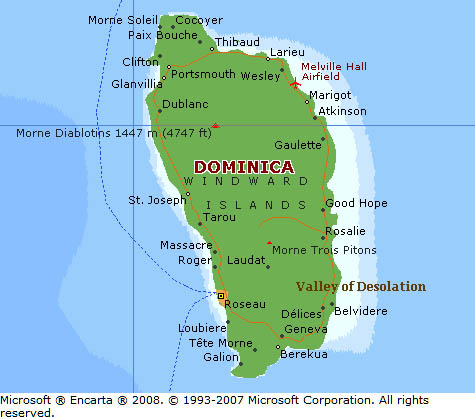The next Caribbean island we visited was Dominica. We arrived early in the morning in Roseau, the capital.
Again: We always tried to get from the ship as early as possible to have most of the day for the land excursion. We were usually ready for breakfast at 7:30 at the latest in order to be ready to get from board at 8:00 a.m. I ate proactively enough to last for the whole day, even if it was not my time for a heavy breakfast. Having lunch on the island means less time for sight-seeing and it saves money.
As soon as we did get from the ship we were looking for a taxi. There were many drivers offering trips to any place on the island or an island roundtrip. I have to mention again: The advantage is that you can determine yourself where you want to go and where you want to stop and for how long. I had read about the best places to visit in my guidebook just before we arrive. By the way, all the taxi drivers also acted as a guide by explaining the sights and answering all our questions.
We made a deal with the taxi driver Mathew for 120 USD for a round trip almost all day. With a taxi you were able to see more and you also were always ahead of the slowly crowd of the ship's excursion packages.
The ship offered land excursions lasting 3.5 to 4.5 hours between 44.75 and 74.75 USD per person. Actually not much to do or to see in 4.5 hours.
However, it also offered more than just land excursions: About 20 more activities you can choose from like canopy challenge, river tubing, hiking, champagne snorkeling, kayaking, whale safari, cooking Caribbean, glass bottom boat trip or just swimming with prices ranging up to 139.75 USD.
Click the small picture to get it enlarged
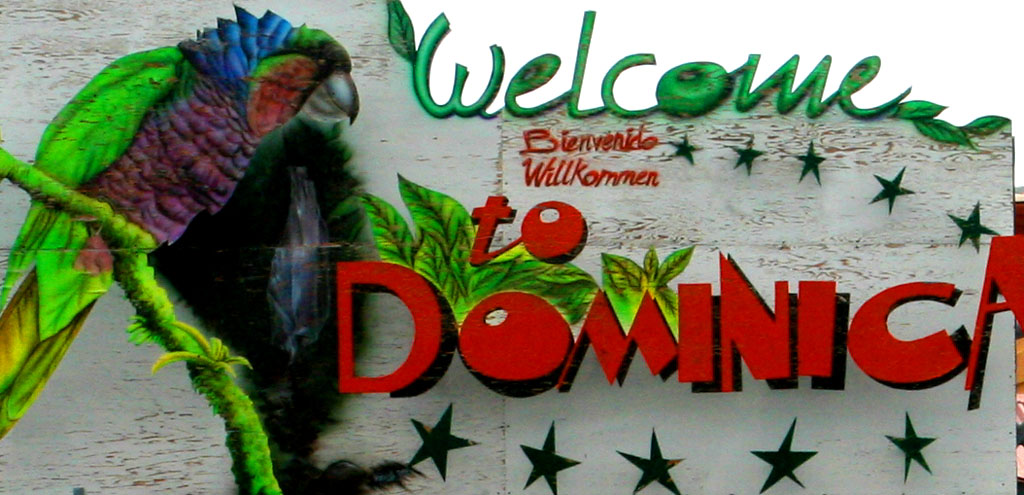
| Arriving in Roseau on the island of Dominica
|
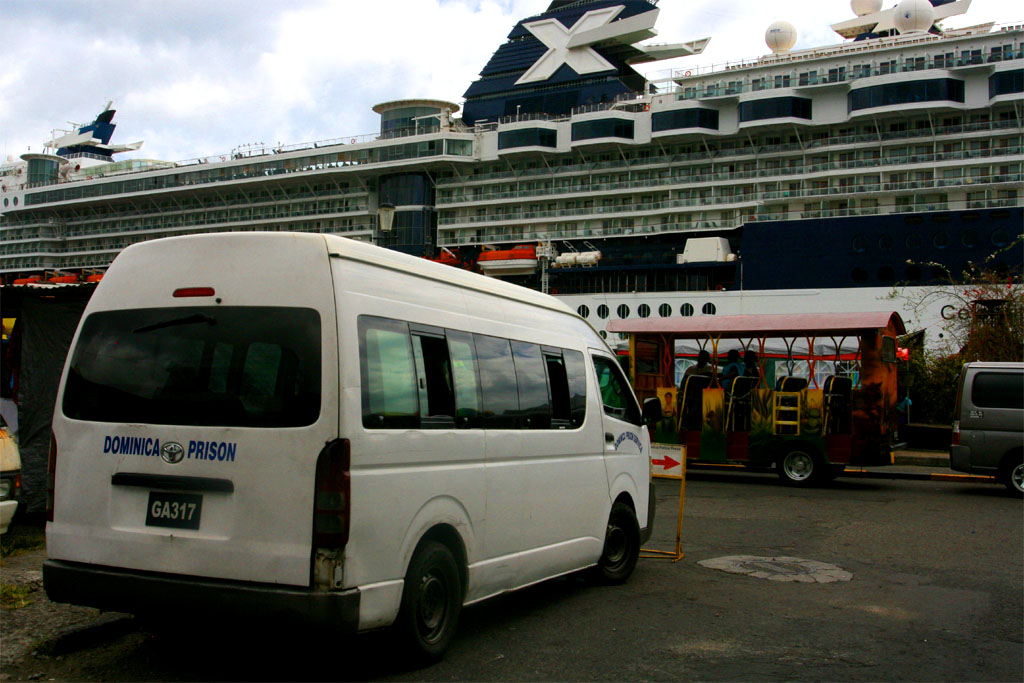
| Looking for a driver with a car but not the prison car
|
We left Roseau right away and drove to the east cross country through the rain forest to the middle of the island where we visited one of the most important sights of Dominica, the Emerald Pool. The pool itself with the waterfall was not that spectacular but the surrounding rainforest and the path down to get there which takes about 15 minutes. Take a look at the following photos.
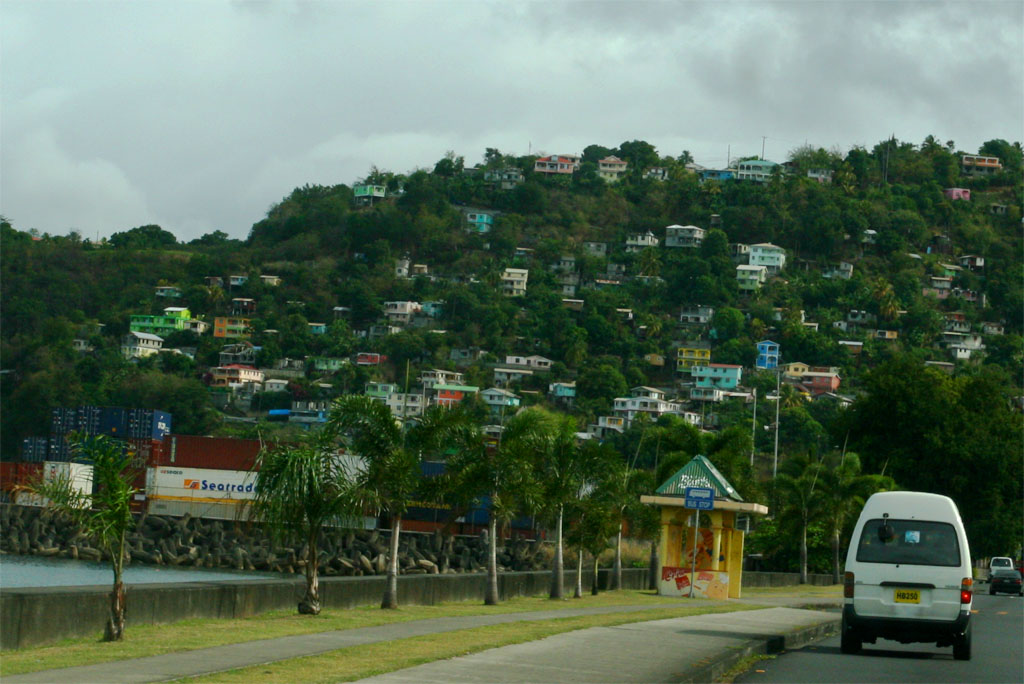
| Driving out of town fast
|
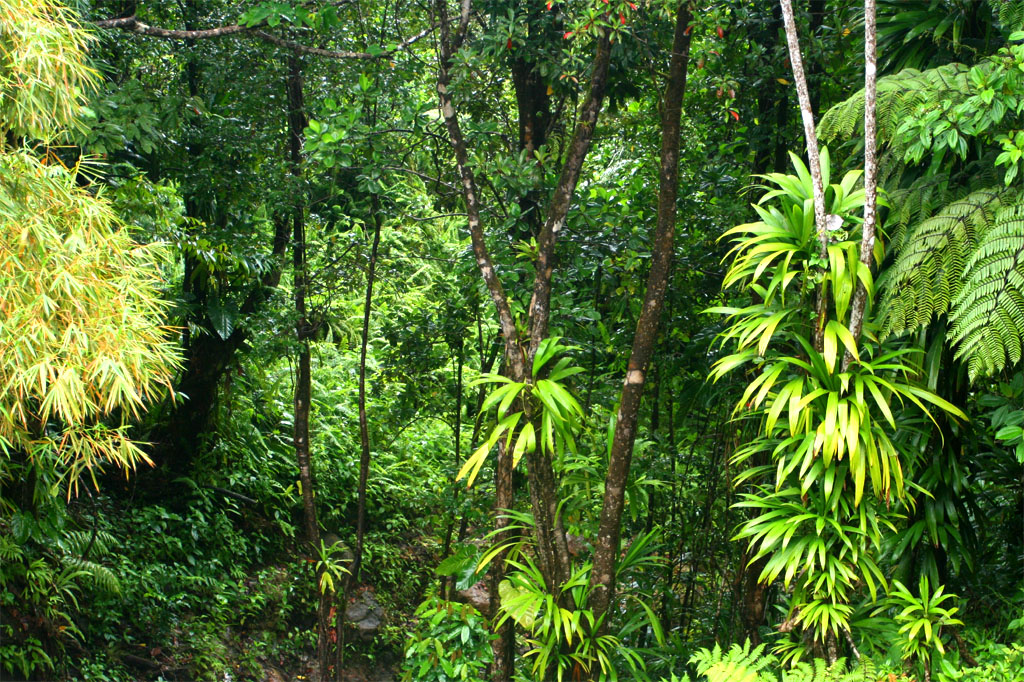
| and getting fast into the jungle
|
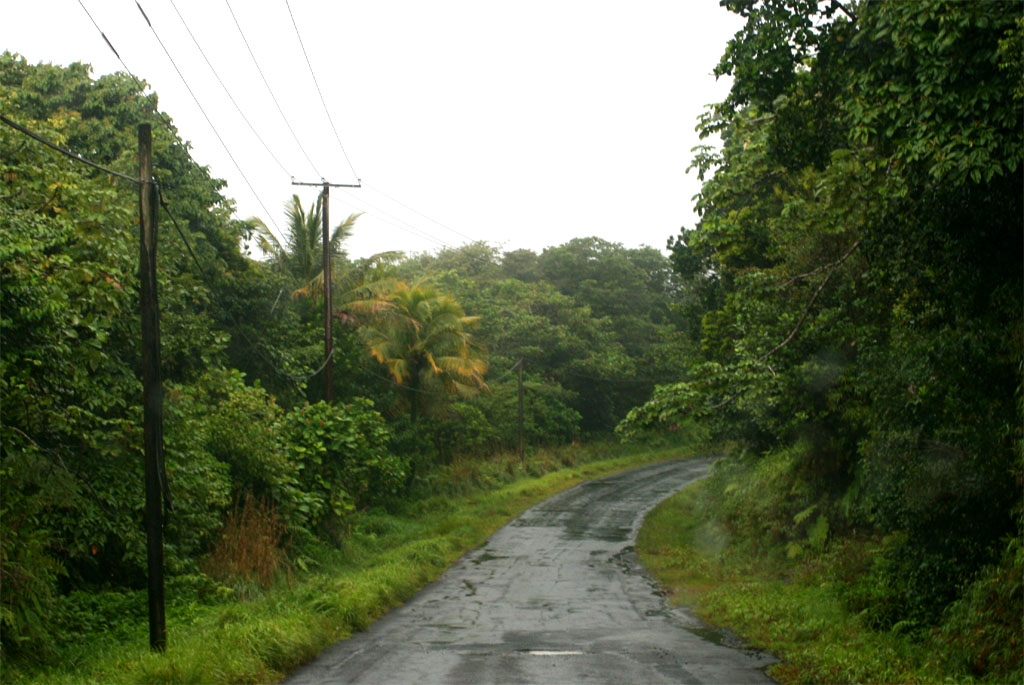
| By driving on this highway
|
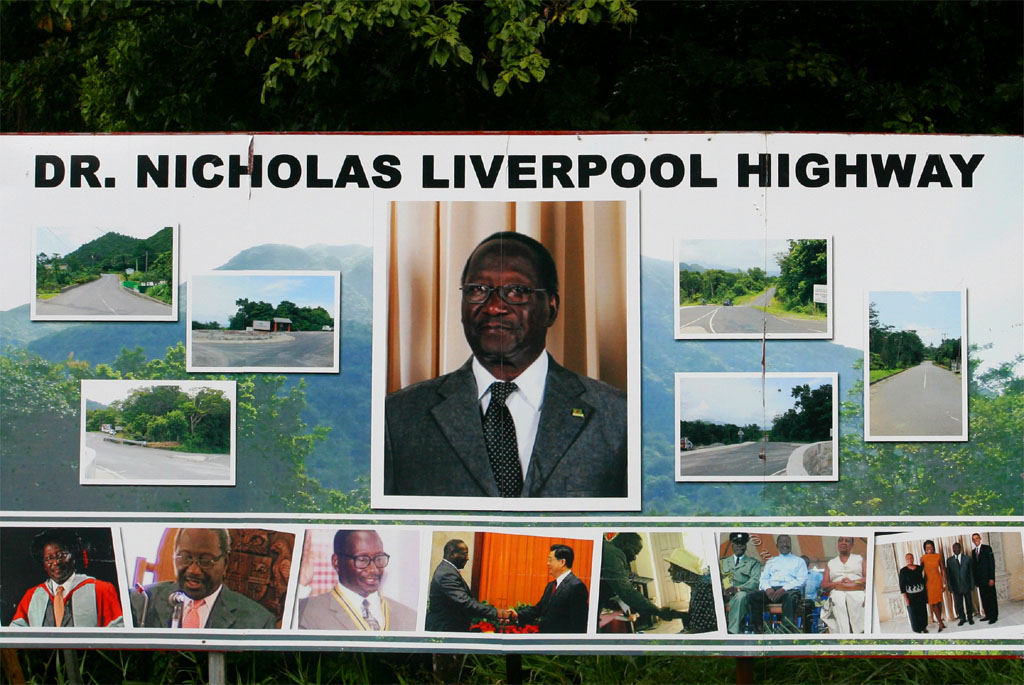
| built by this guy?
|
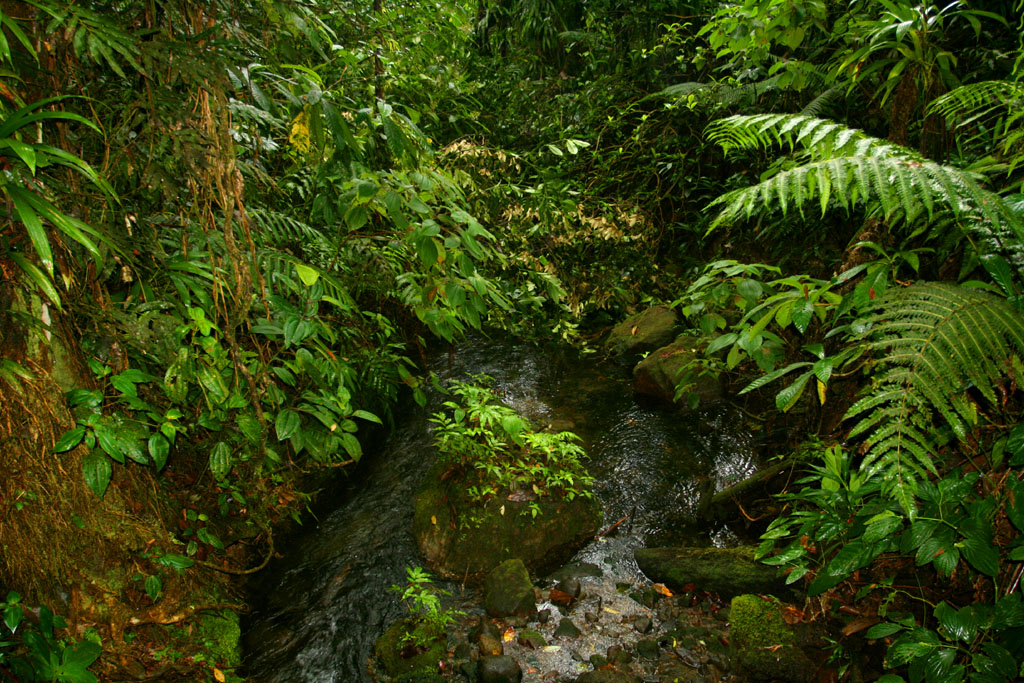
| Now we have to walk through the jungle fast
|
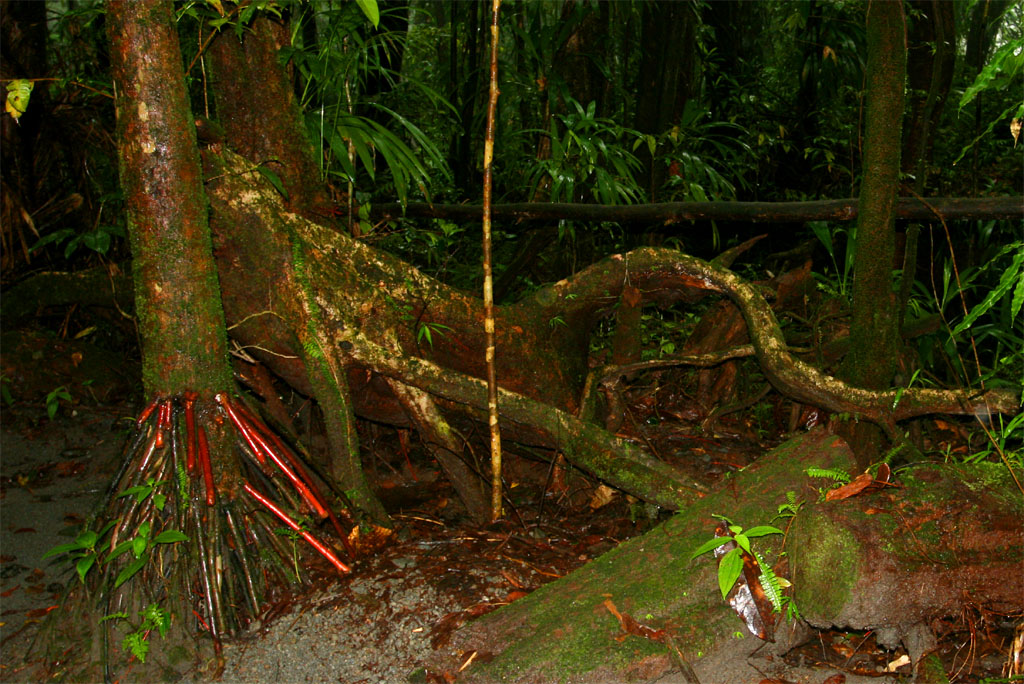
| to escape from weird trees and the 'Summit" crowd following us
|
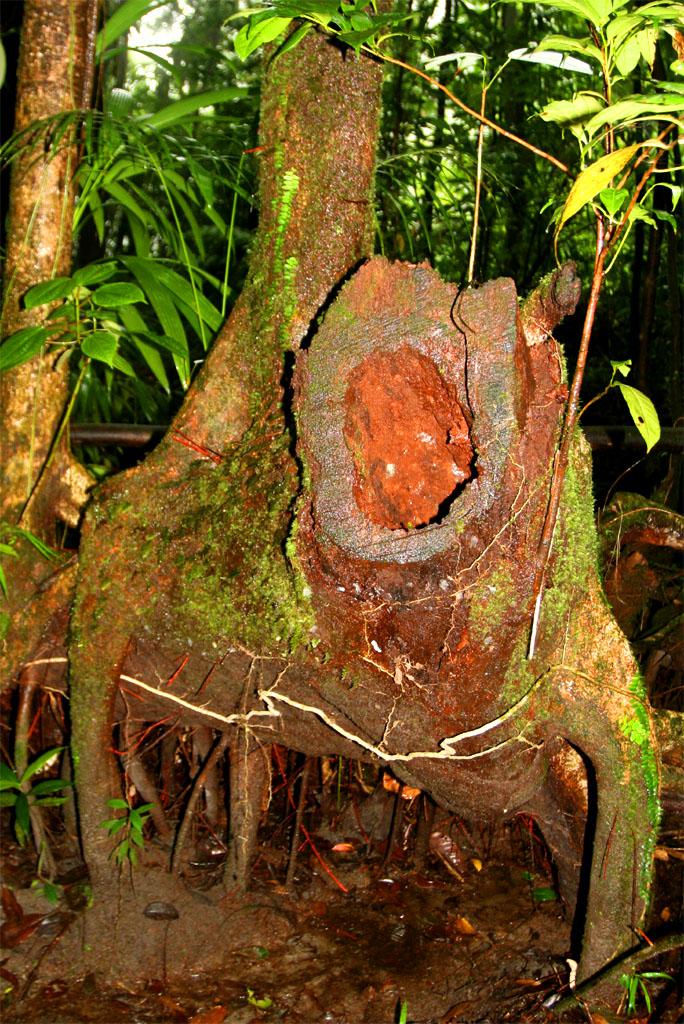
| They should also be scared
|
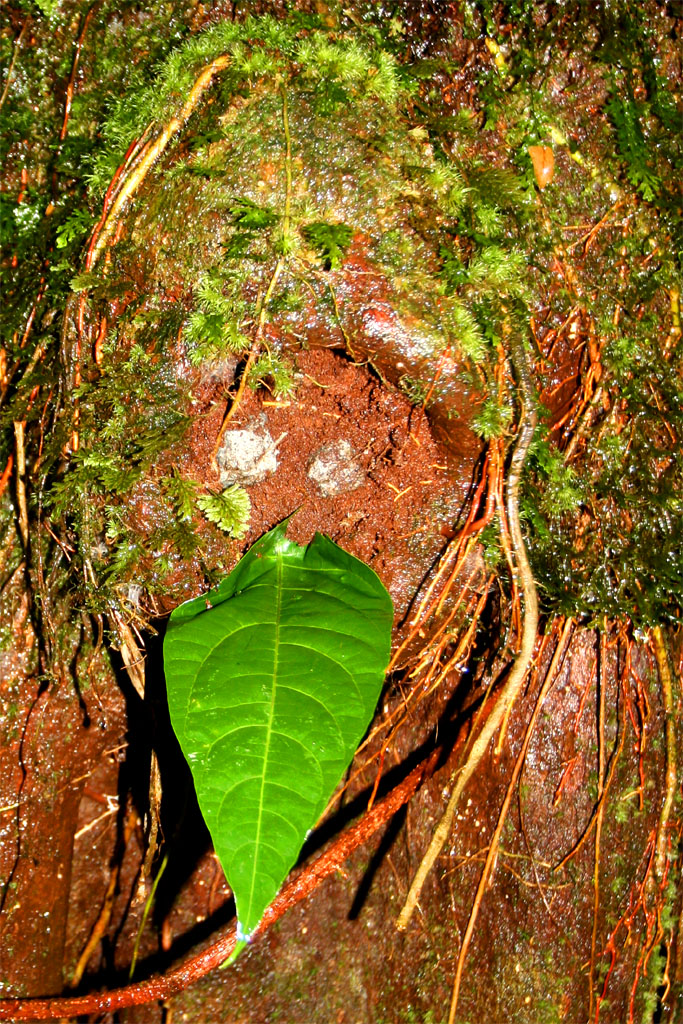
| by ghostly looking trees
|
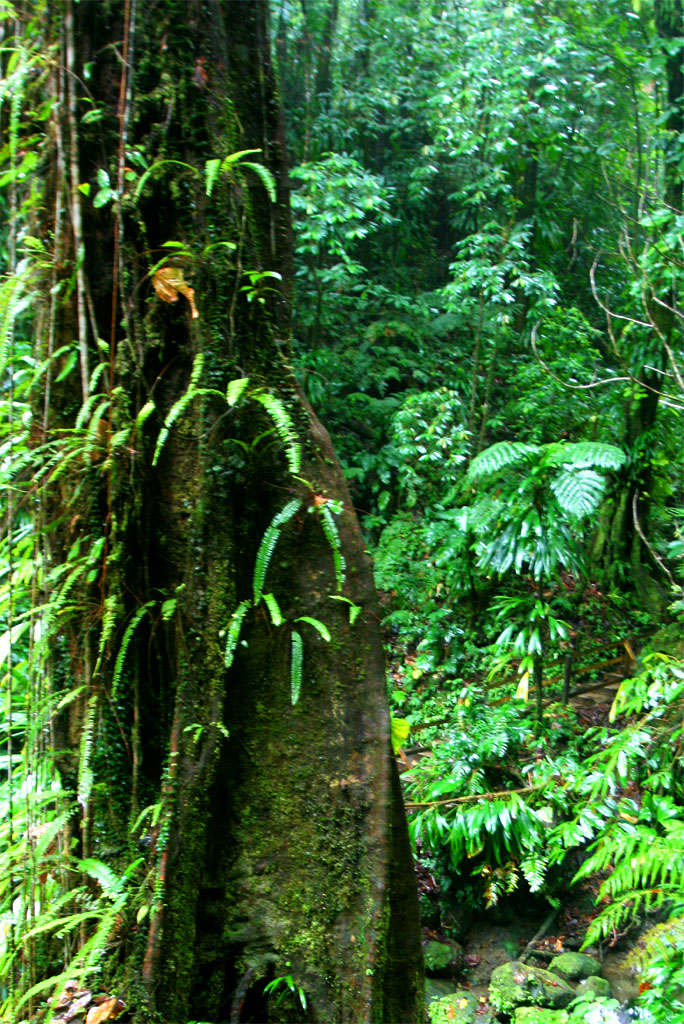
| Farther on the way down
|
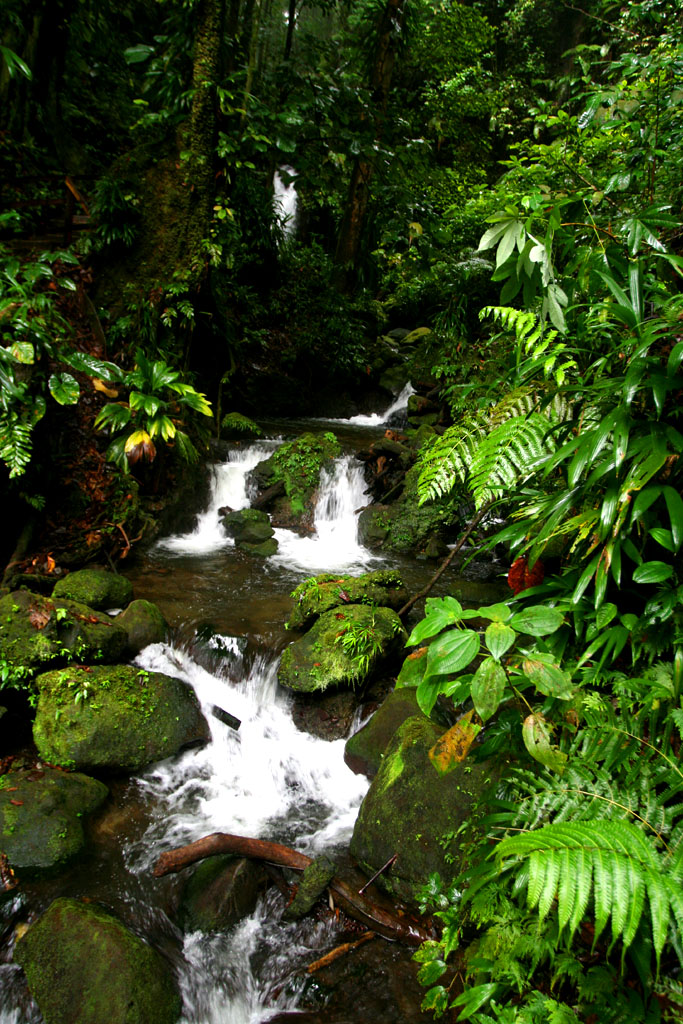
| we are passing-by a small cataract
|
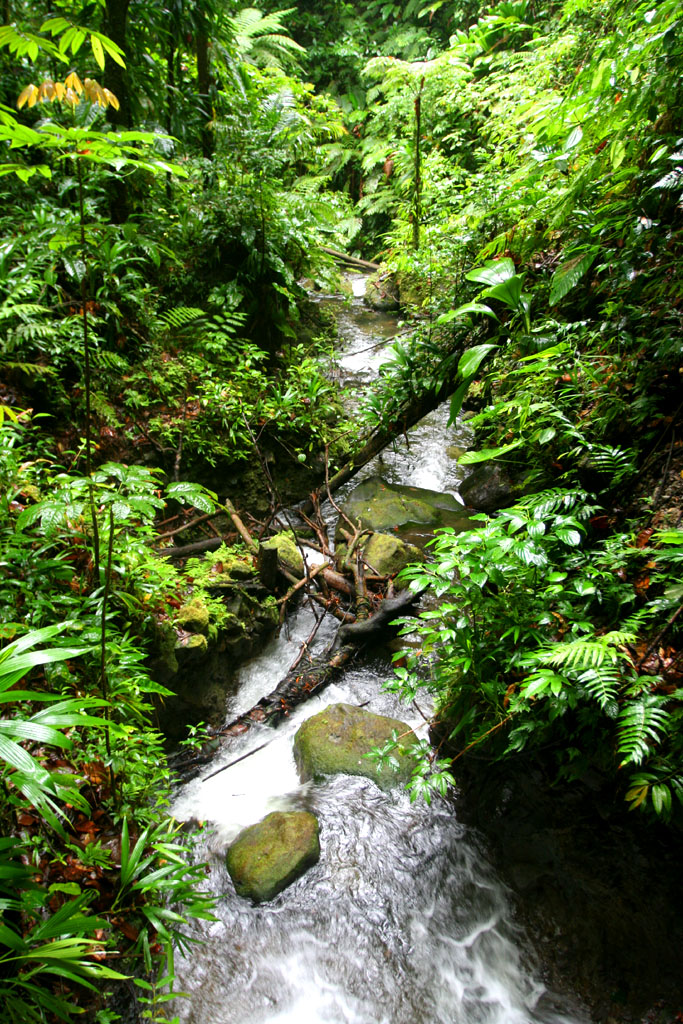
| Finally we see that the small creek
|
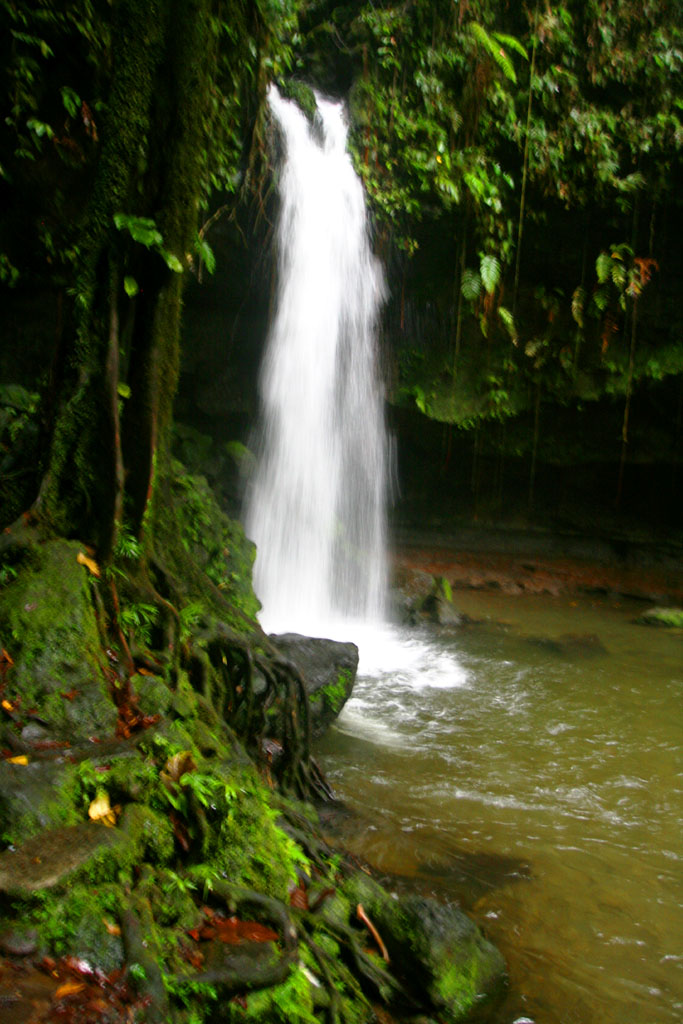
| is coming from the waterfall of the Emerald Pool
|
We were lucky to enjoy the tranquility at the Emerald Pool all by ourselves. On the way up about hundred people from the "Summit" just came stumbling down. What's coming next? After a stop-over at supposedly Mr. Nice Fruit Stand we were driving along the Layou river, famous for shooting down the rapids with a tube or kayak.
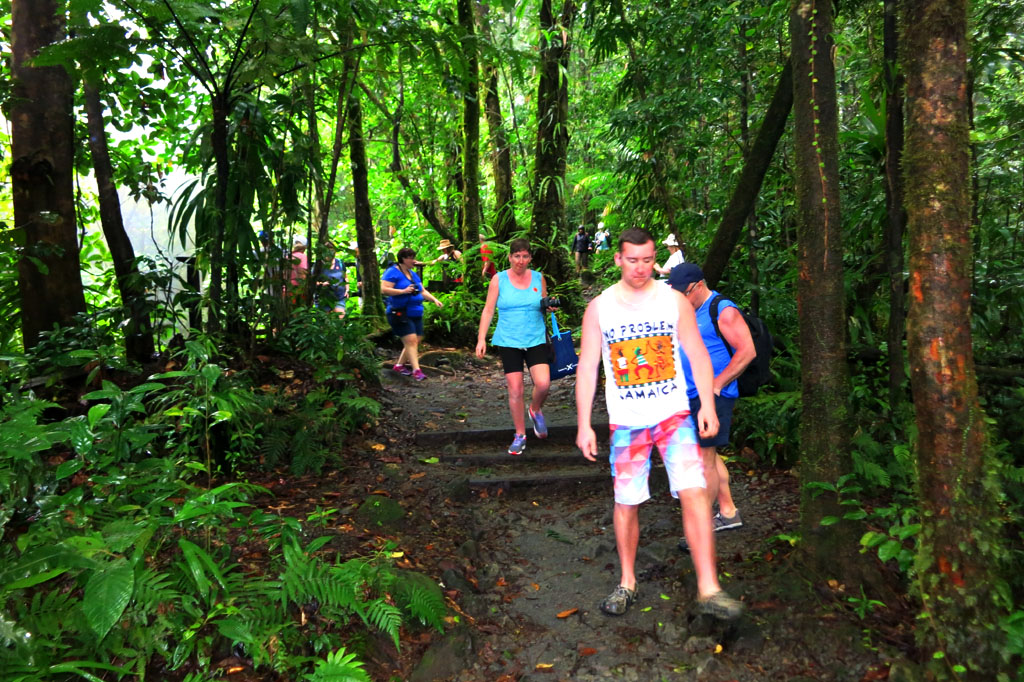
| The "Summit" crowd is coming
|
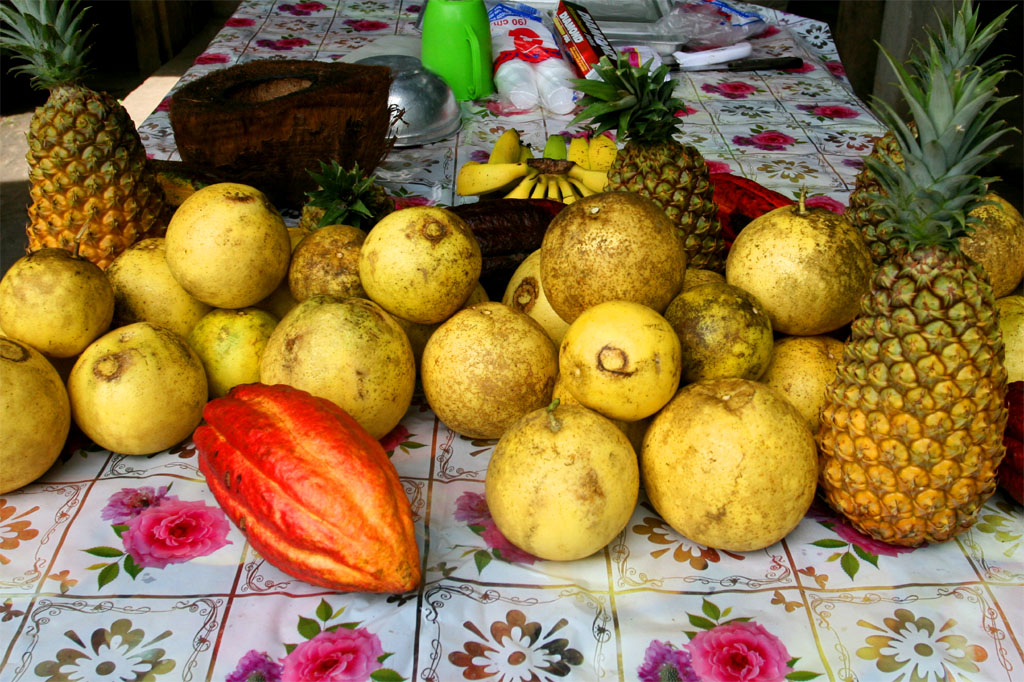
| Next heading to Mr. Nice's Fruit Stand
|
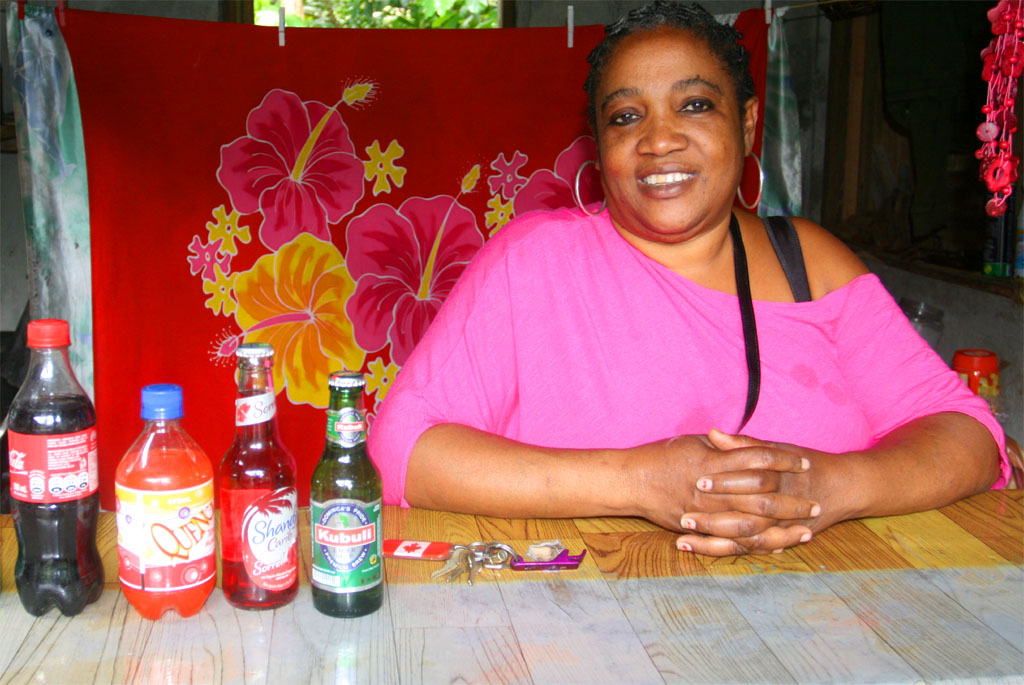
| But it's a nice Mrs. Nice now
|

| who is very strict with shoplifters
|
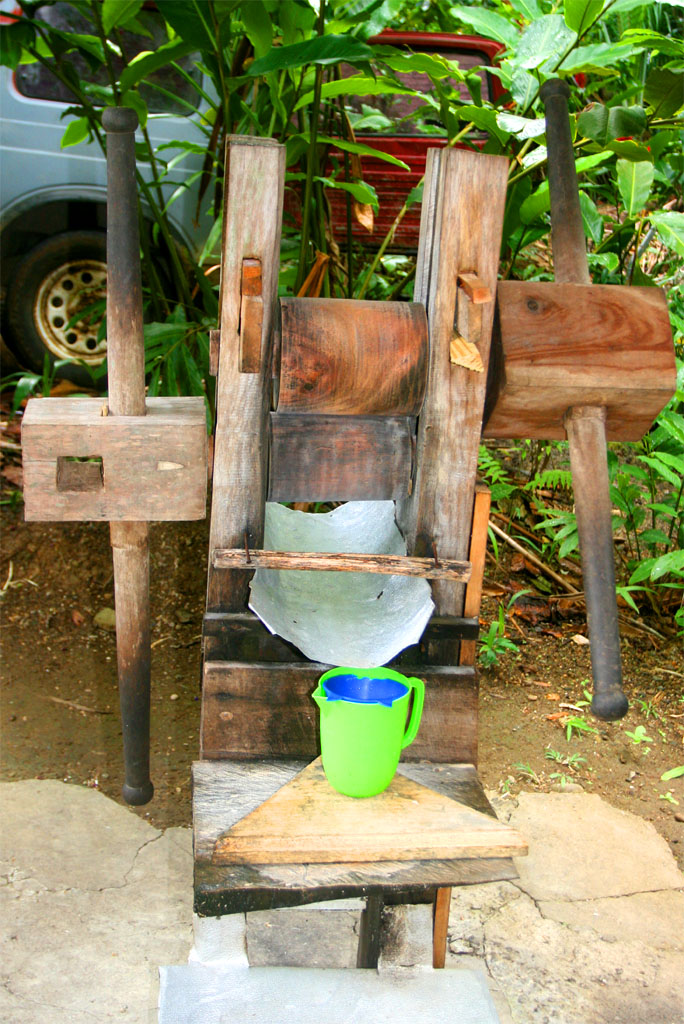
| I wouldn't drink a germ infested sugar cane juice
|
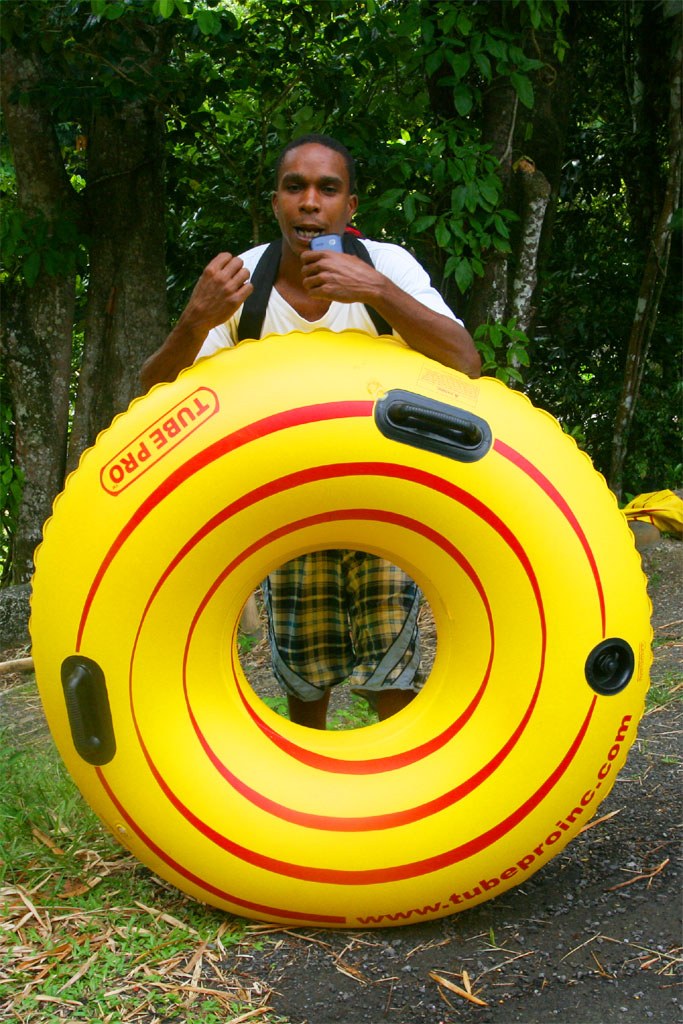
| What is this?
|
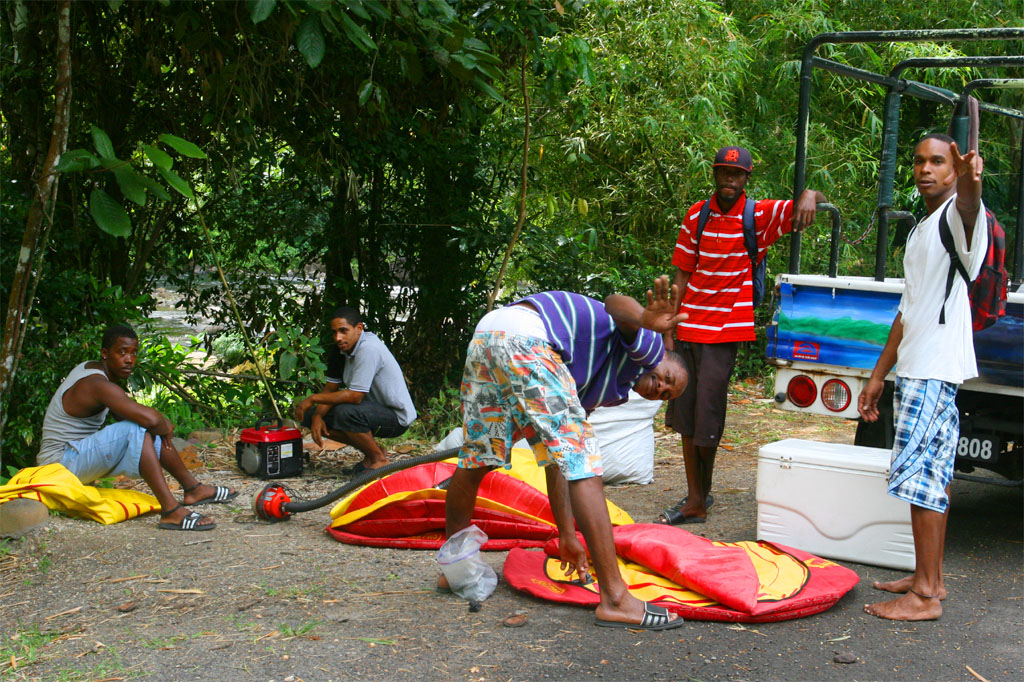
| It's Tubing: White water rafting sitting on a tube
|
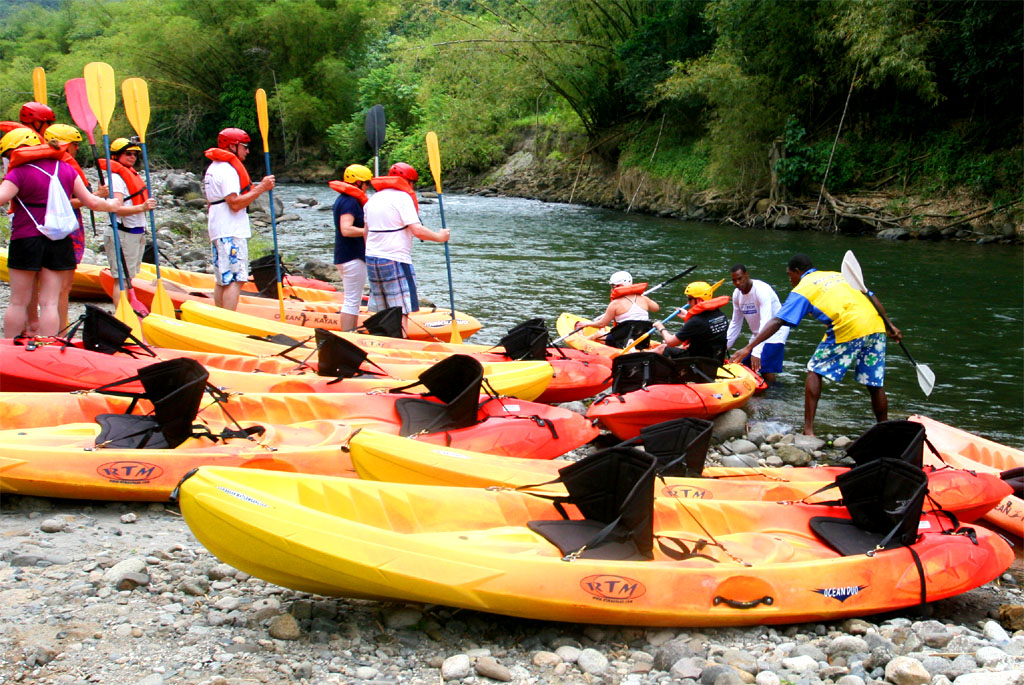
| Better: White water rafting sitting in a kayak
|
I could have booked the "River Tubing" excursion for 85.75 USD lasting four hours and the "Downstream River to Ocean Kayak" excursion for 75.75 USD lasting three hours. Maybe I will do it another time if staying for a longer time on the island. It would be worthwhile also because of so many natural wonders beside the beaches and the Carib Territory, a reservation for the last indigenous Kalinago people, which unfortunately was not offered as an excursion and our driver didn't want to go there either. By the way, parts of the "Pirates of the Caribbean" with Johnny Depp are filmed on this island.
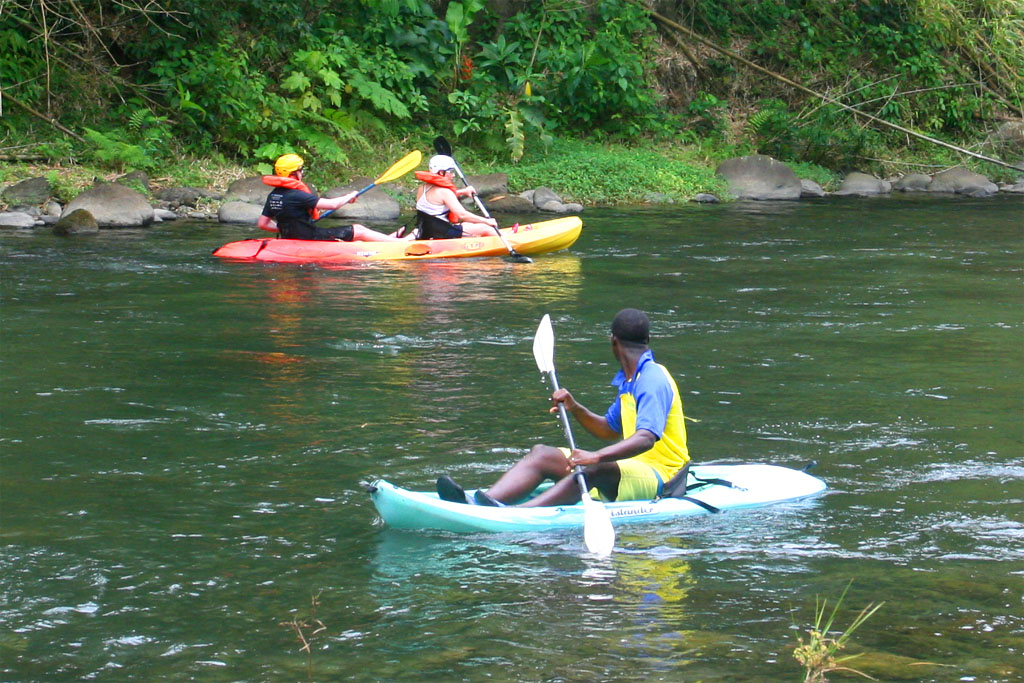
| The Layou river is not that dangerous
|
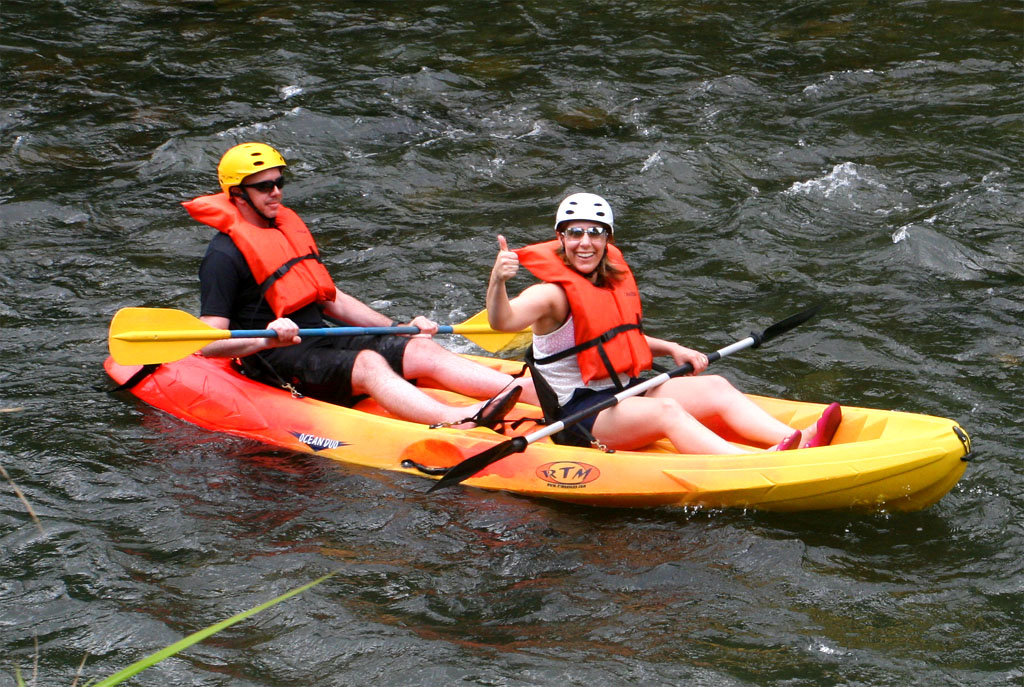
| This couple is not afraid either
|
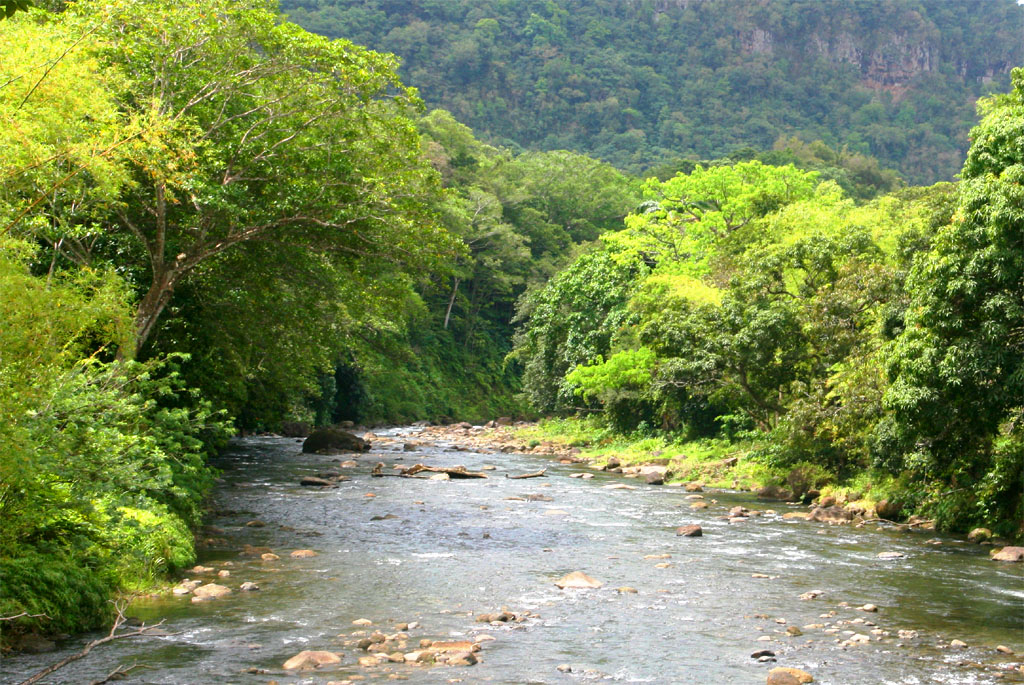
| Here the river is still calm
|
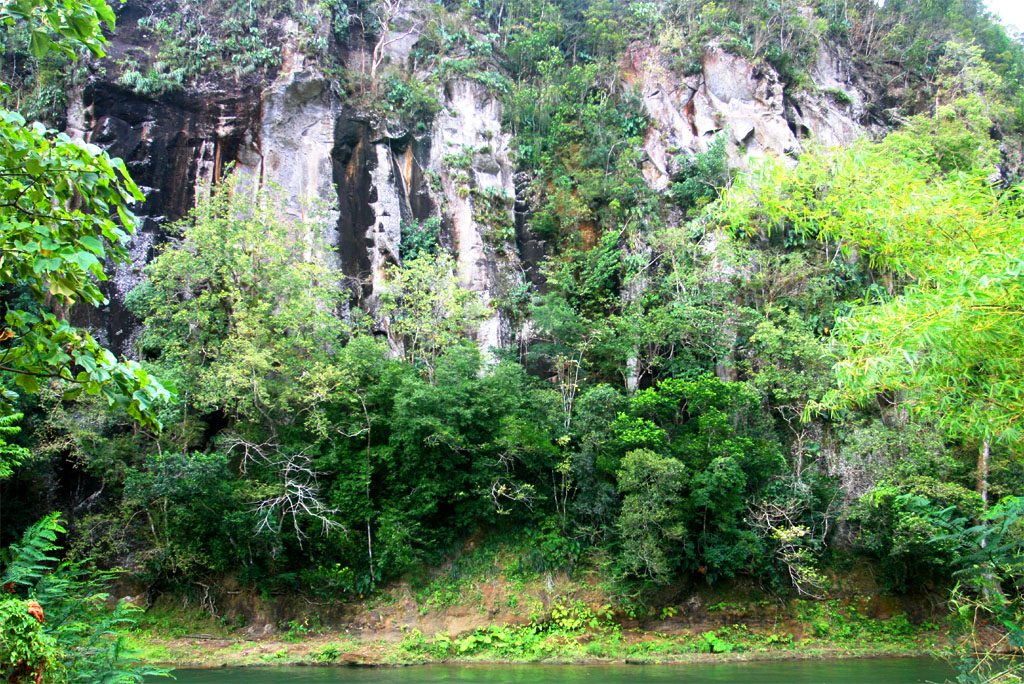
| Only the steep rocks look dangerous
|
After the Layou river we were heading to the famous Trafalgar Falls. But before we could get there we had to drive somehow south almost back to Roseau and then to the east into the Morne Trois Pitons National Park, a UNESCO World Heritage.
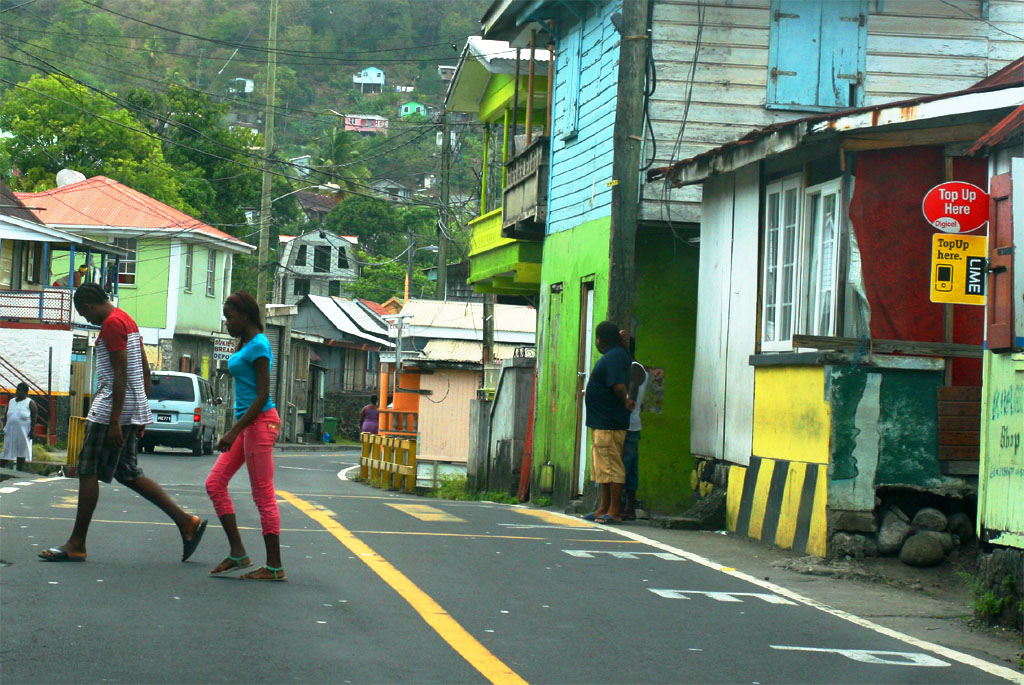
| Passing through a village with old buildings
|
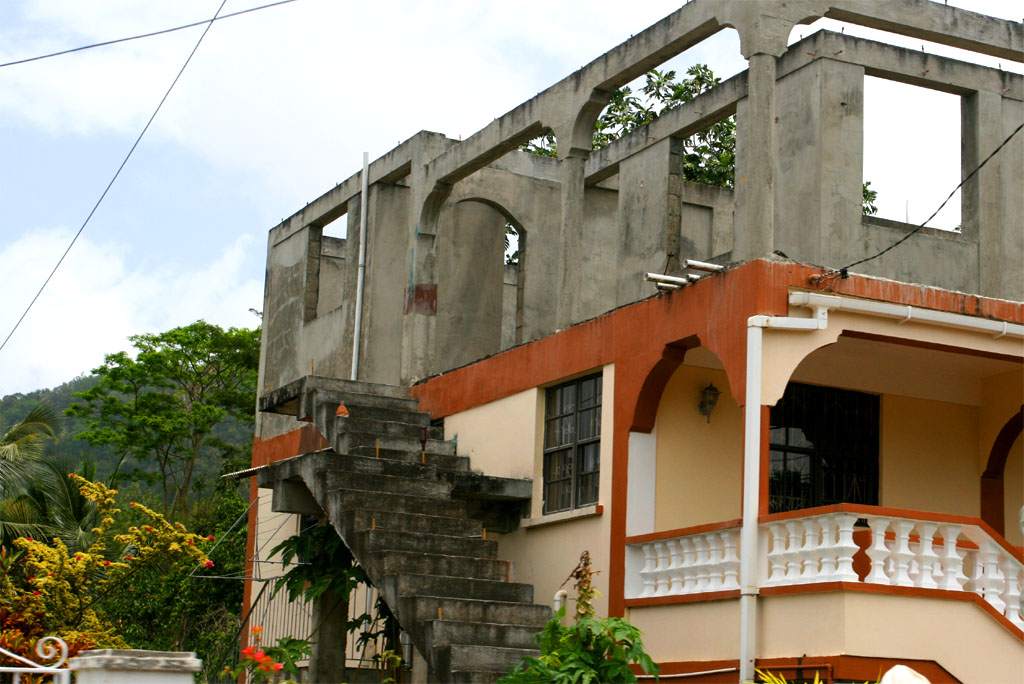
| A new building but money ran out for the second floor
|
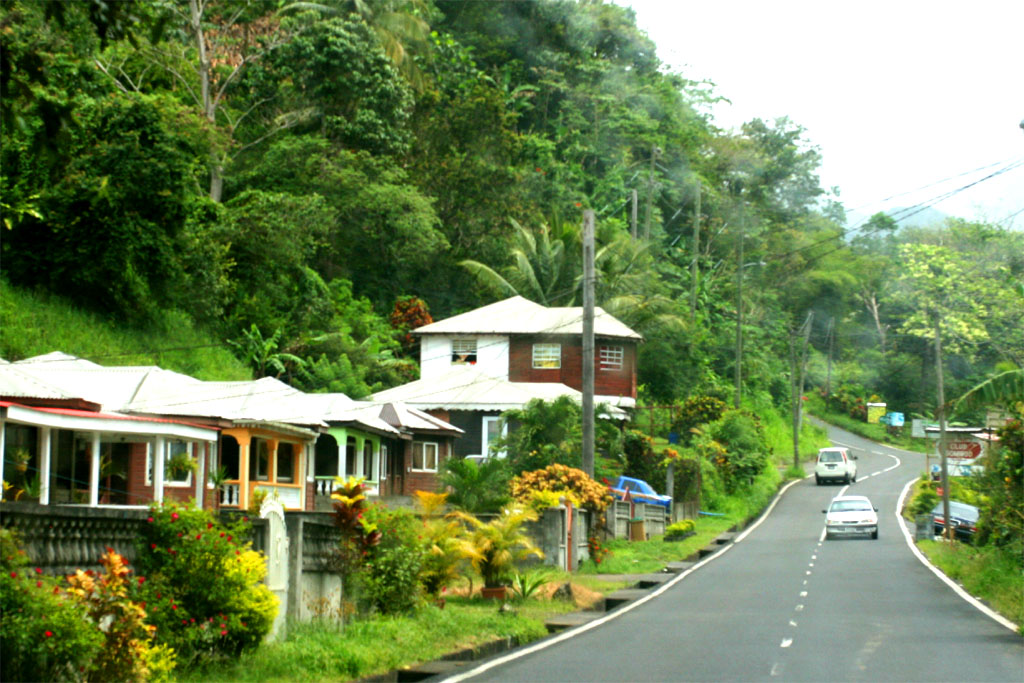
| New houses along the road
|
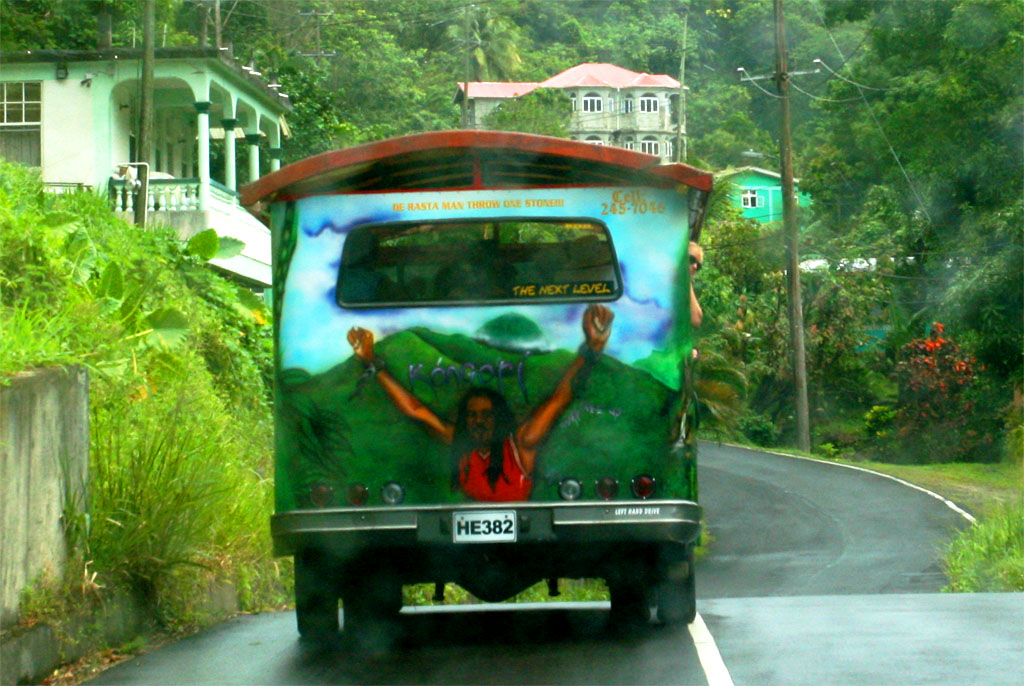
| A colorful trolley bus before us
|
Unfortunately the road to get close to the Falls was closed. The driver didn't know exactly why. But it probably was not the first time, because a bunch of vendors have already gathered at a far away road where you could get at least a view of the falls a couple of miles away. Next site, the Sulphur Springs, was close-by and here you were able to get closer, very close.
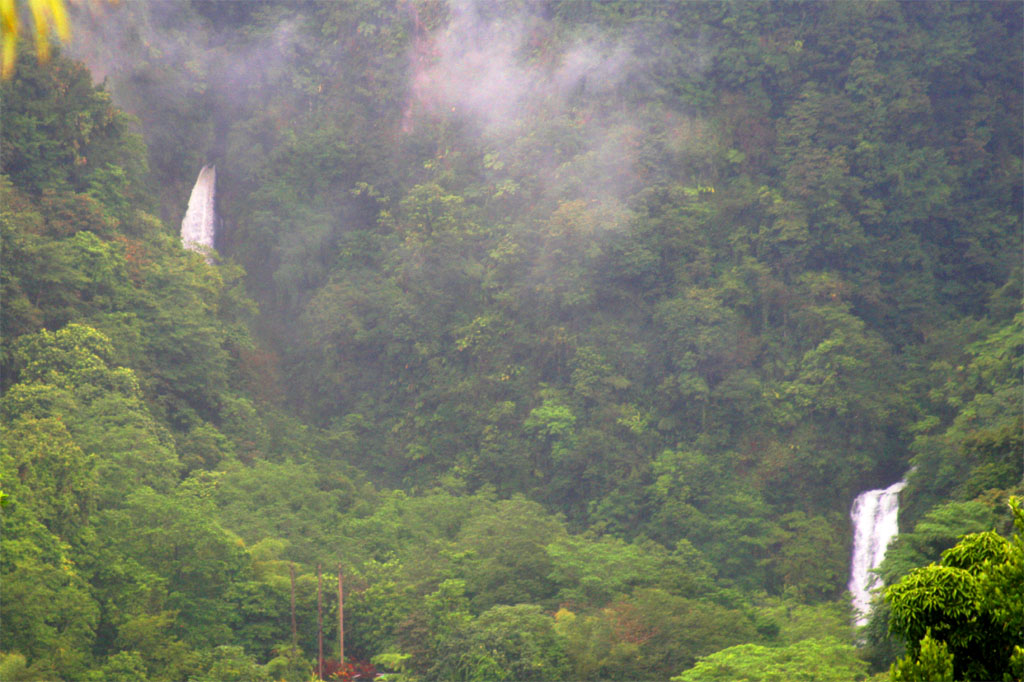
| No way to get closer to the Trafalgar Falls already zoomed in
|
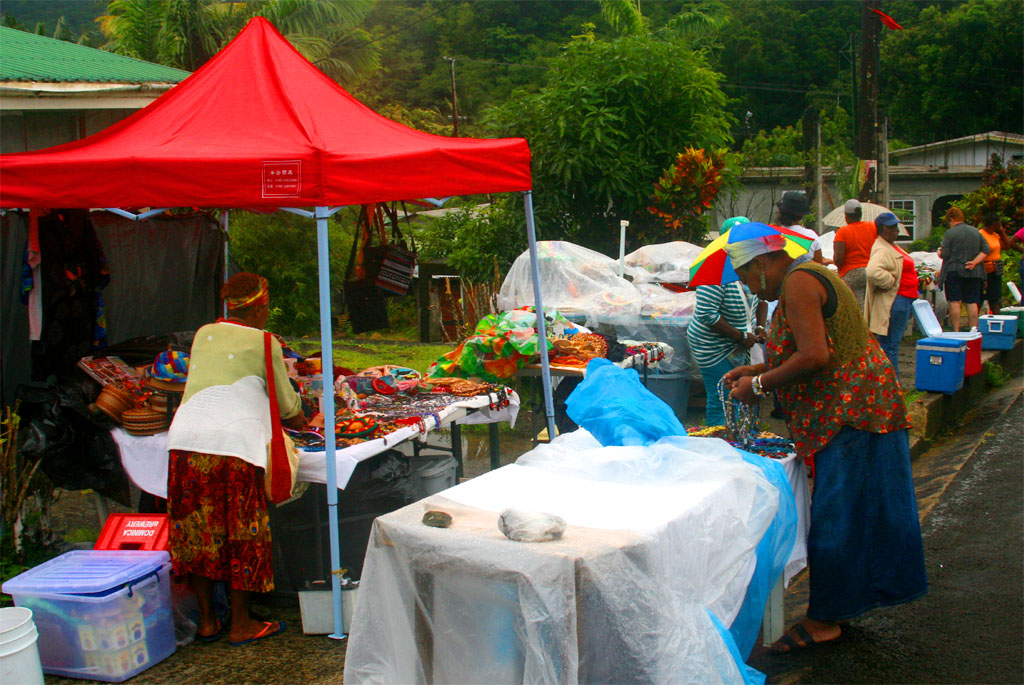
| But at least you can buy many souvenirs
|
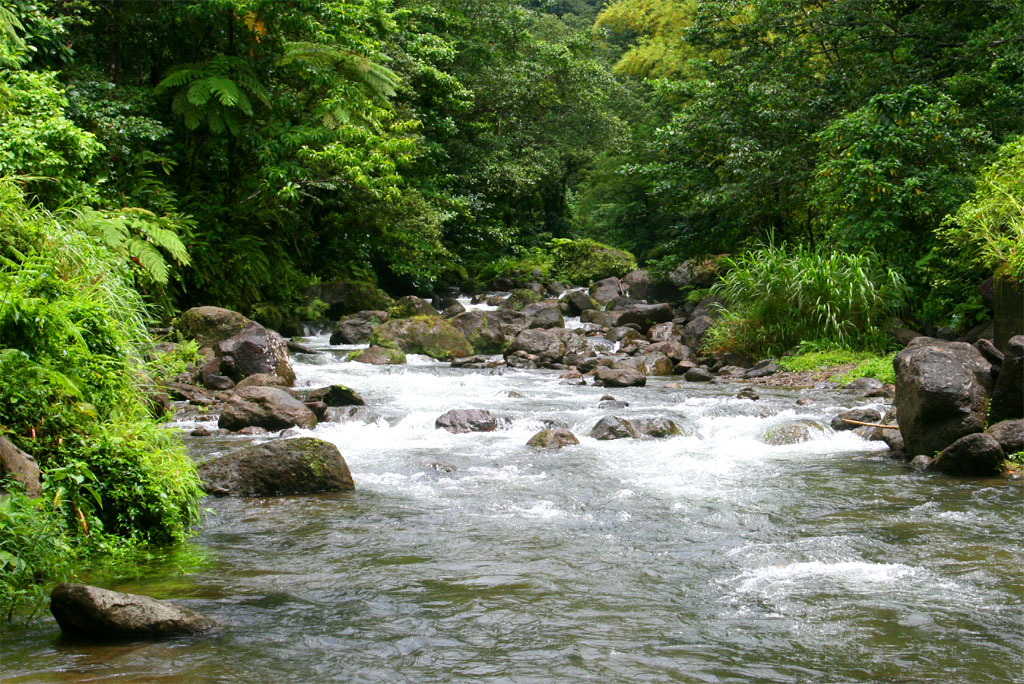
| Then we continued over a river
|
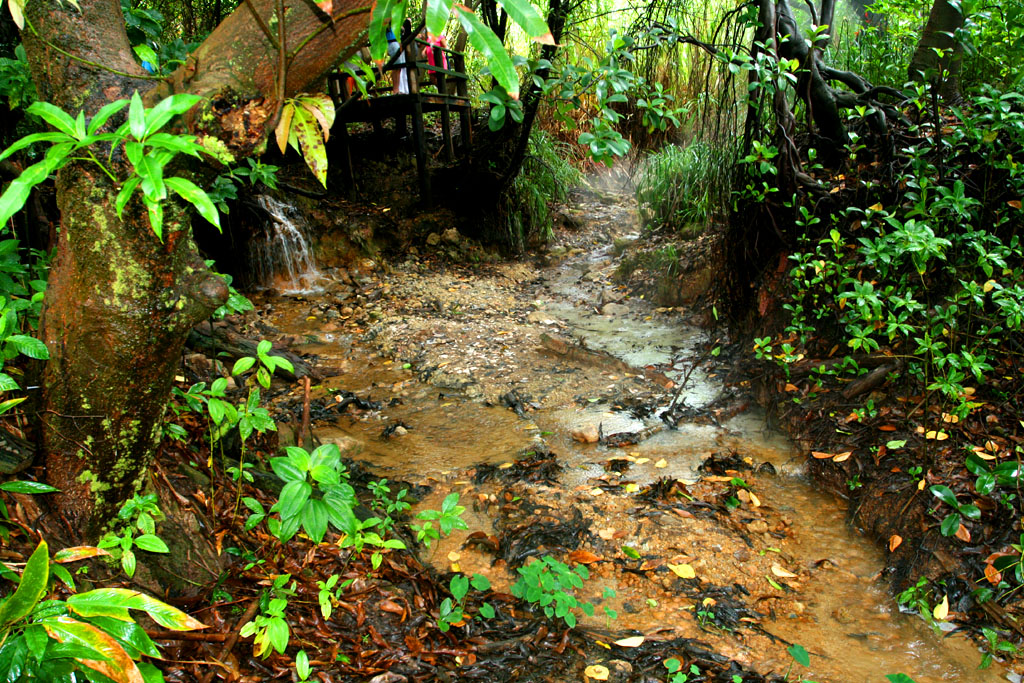
| and reached the Sulphur Springs
|
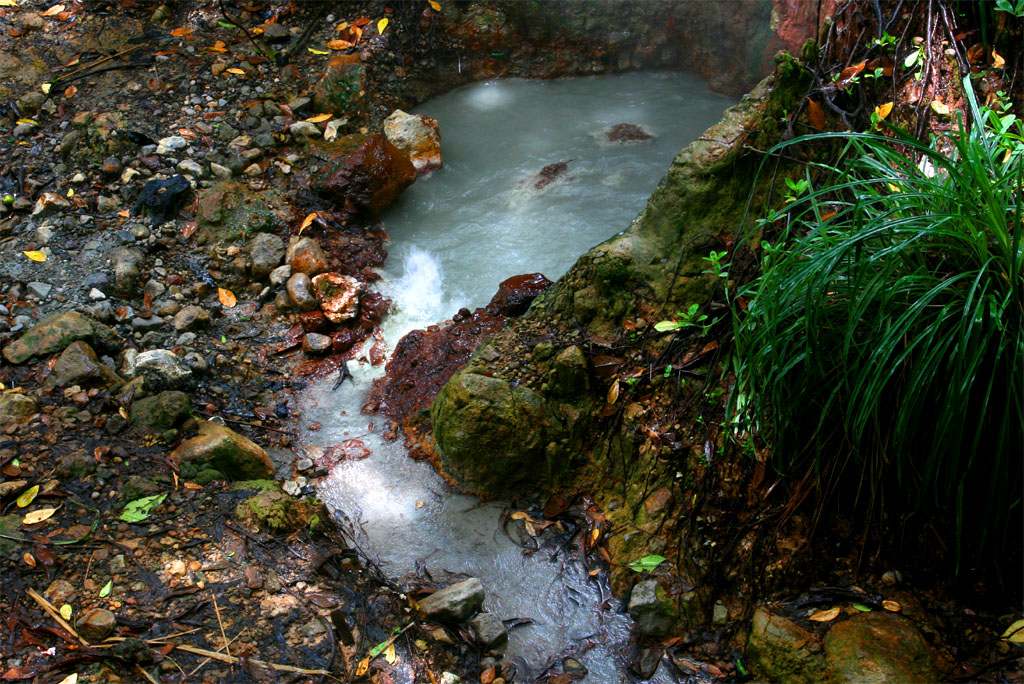
| You really can smell
|
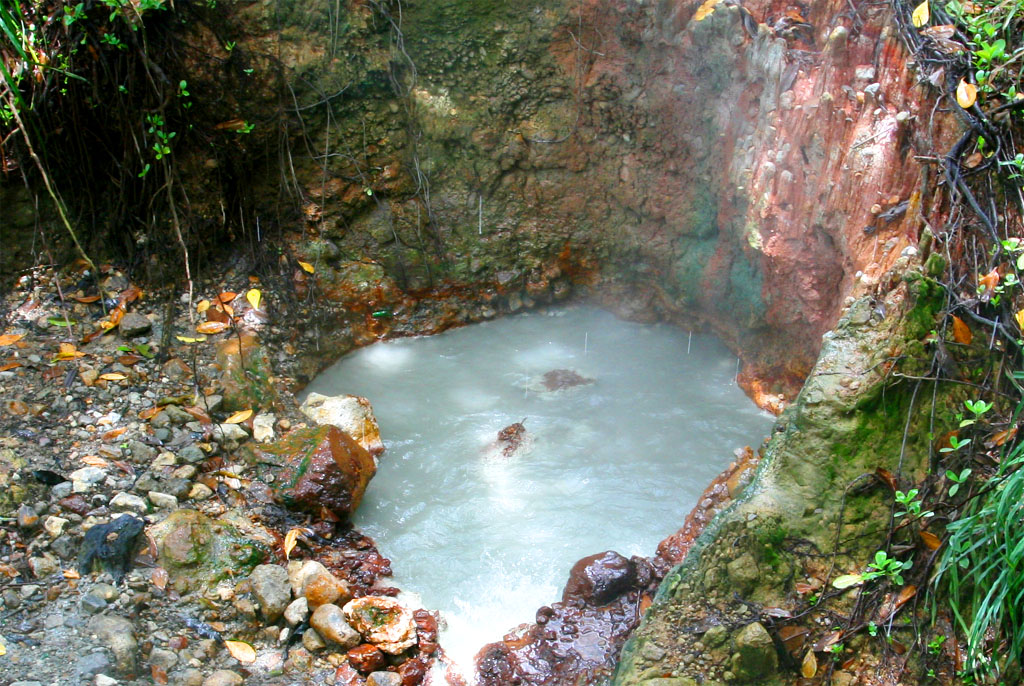
| that this is sulphur
|
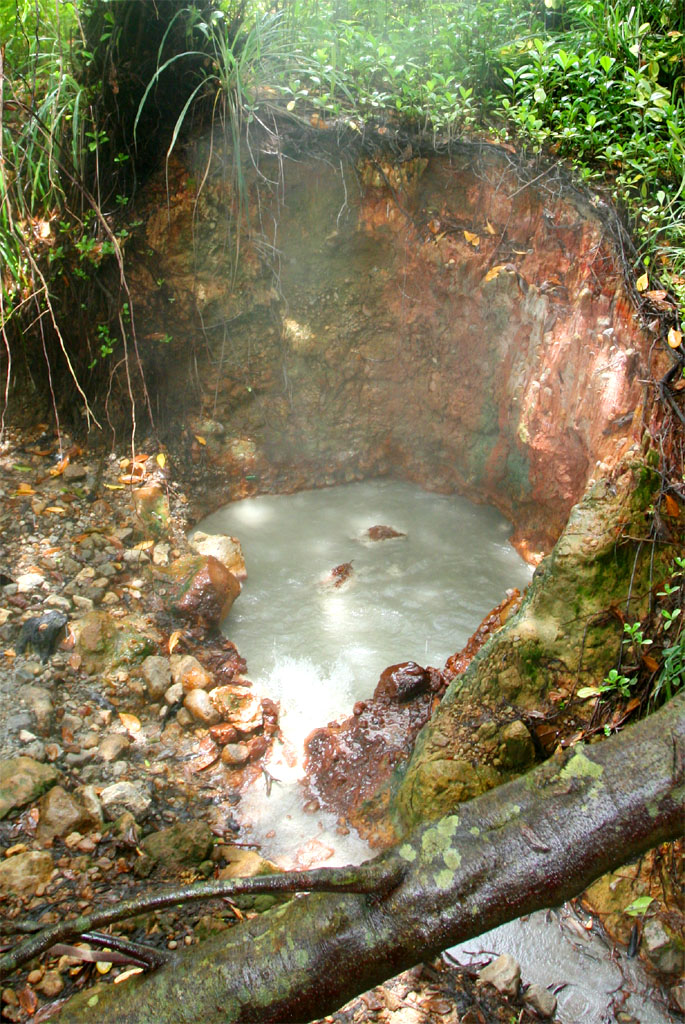
| You can see the steam rising
|
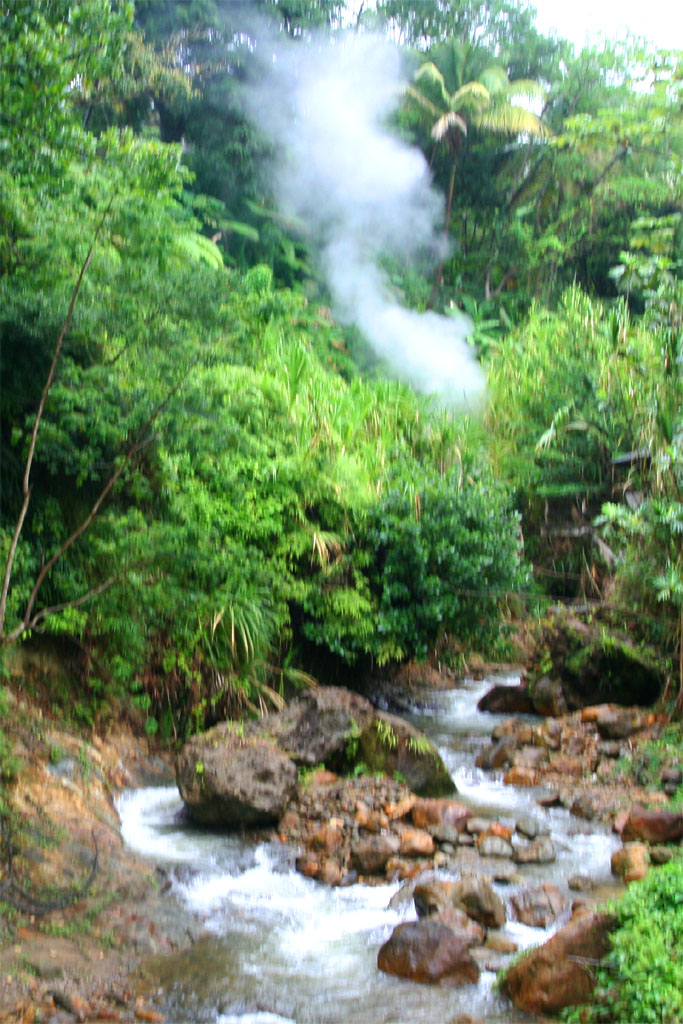
| from the hot sulphur spring
|
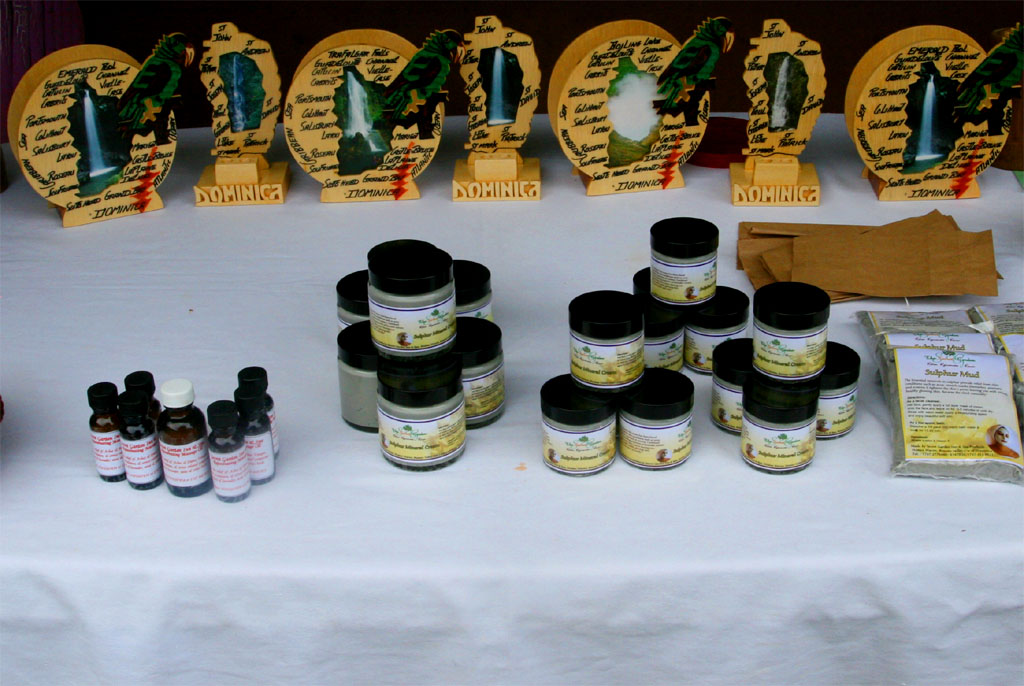
| A good business idea: Selling sulphur mud
|
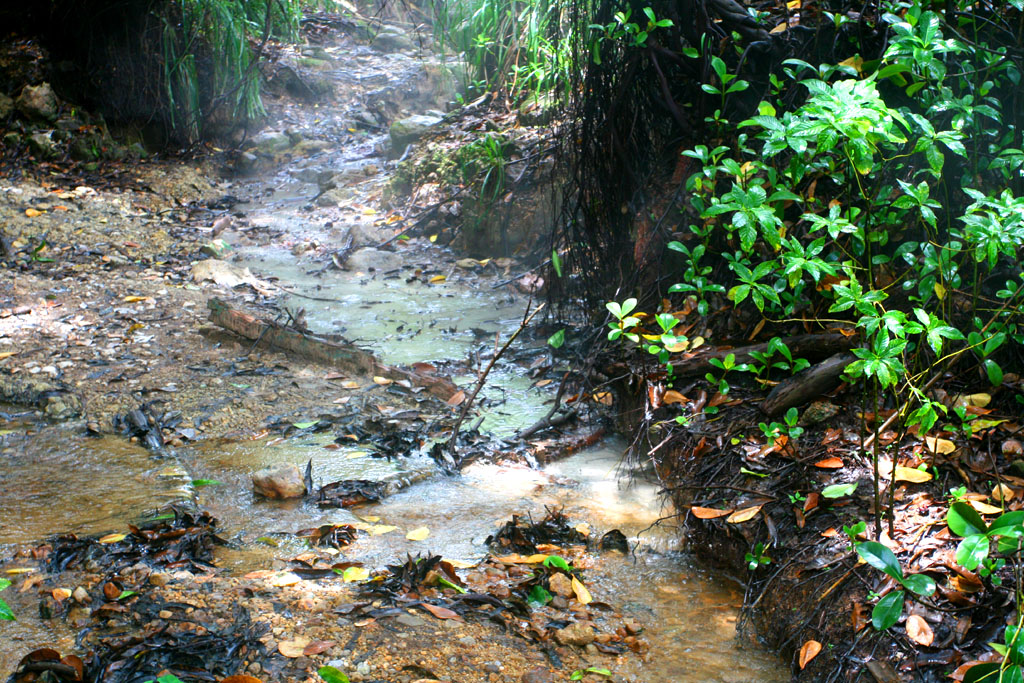
| collected from the creek's sediment
|
On the way back to Roseau we visited the Botanic Gardens or let's say just the remnants of the devastation caused by the Hurricane David in the year 1979. We didn't take a look at the garden itself, though. I read that it was not as spectacular as the crushed bus.
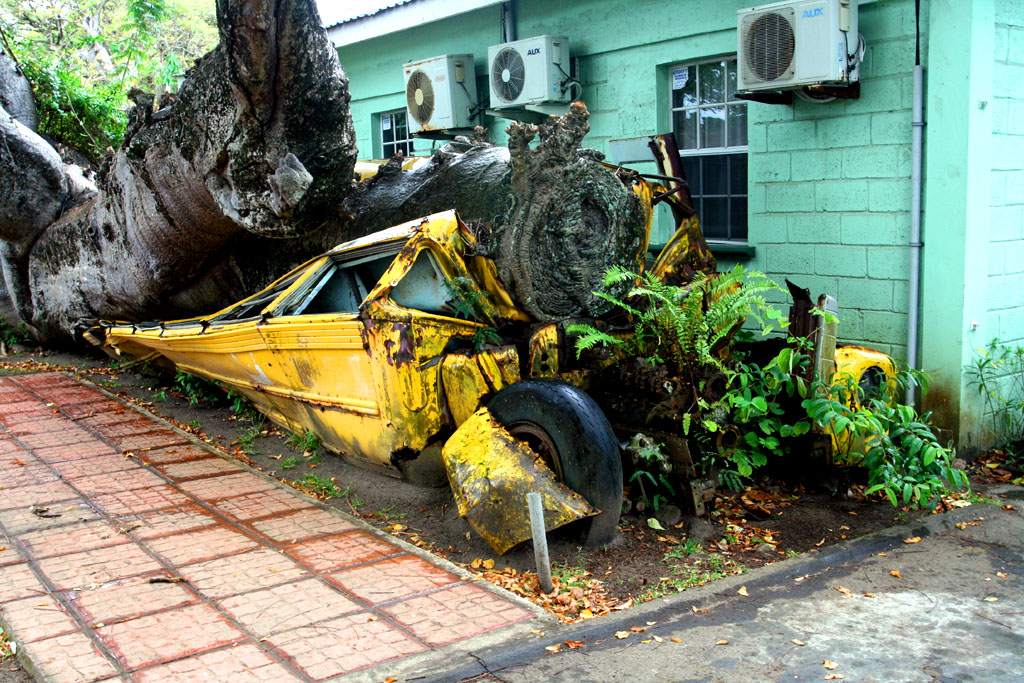
| That is an example of the power of nature
|
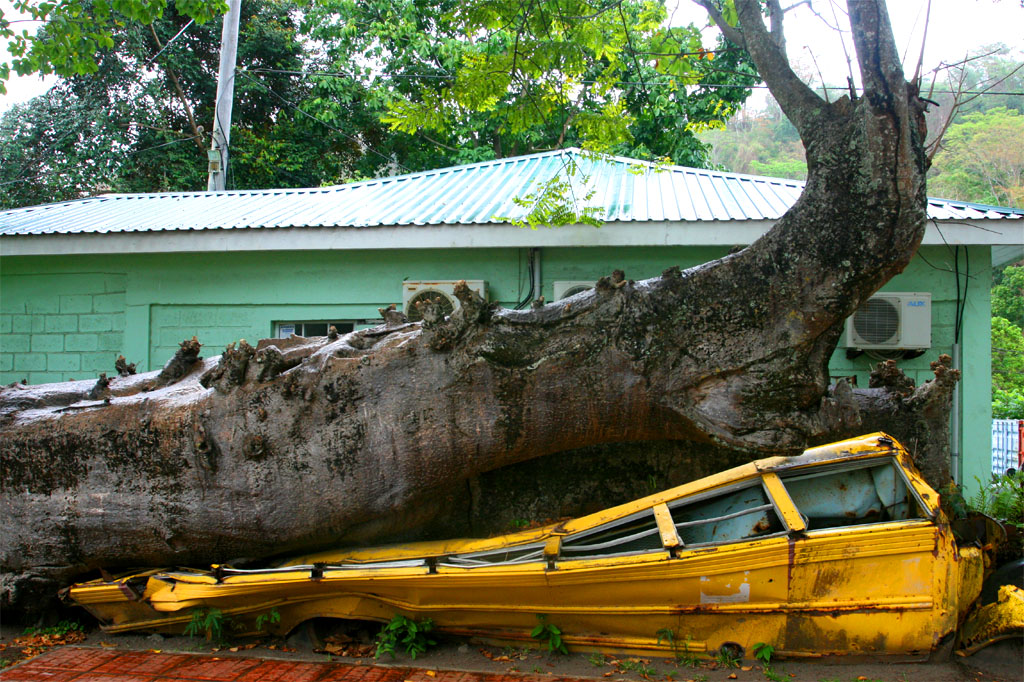
| A hurricane crashed the tree on the bus
|
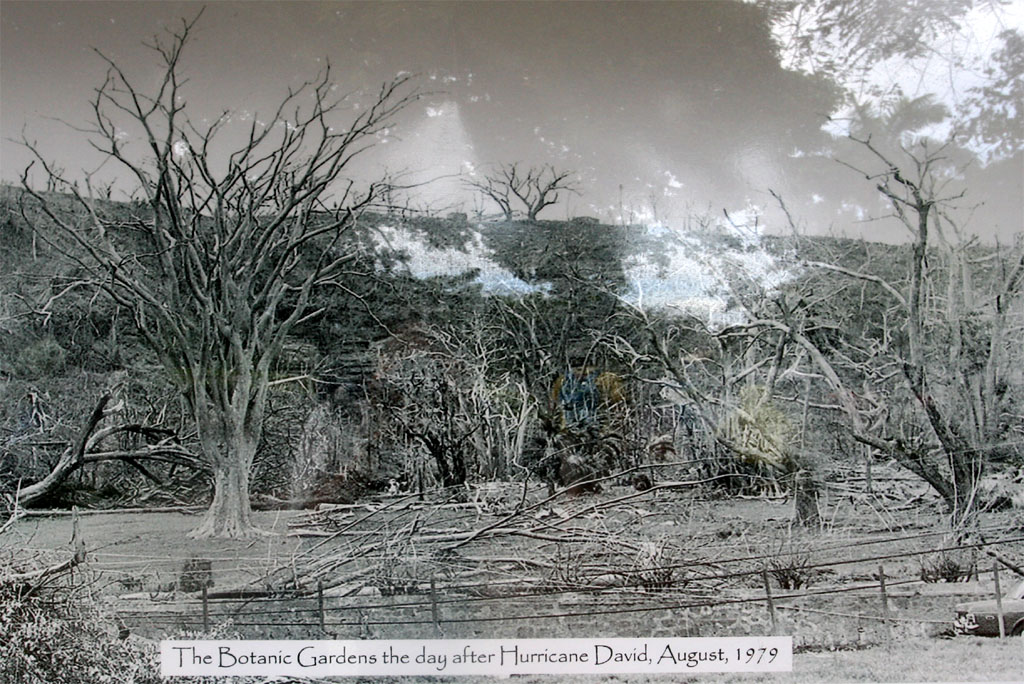
| That was right after hurricane David in the year 1979
|
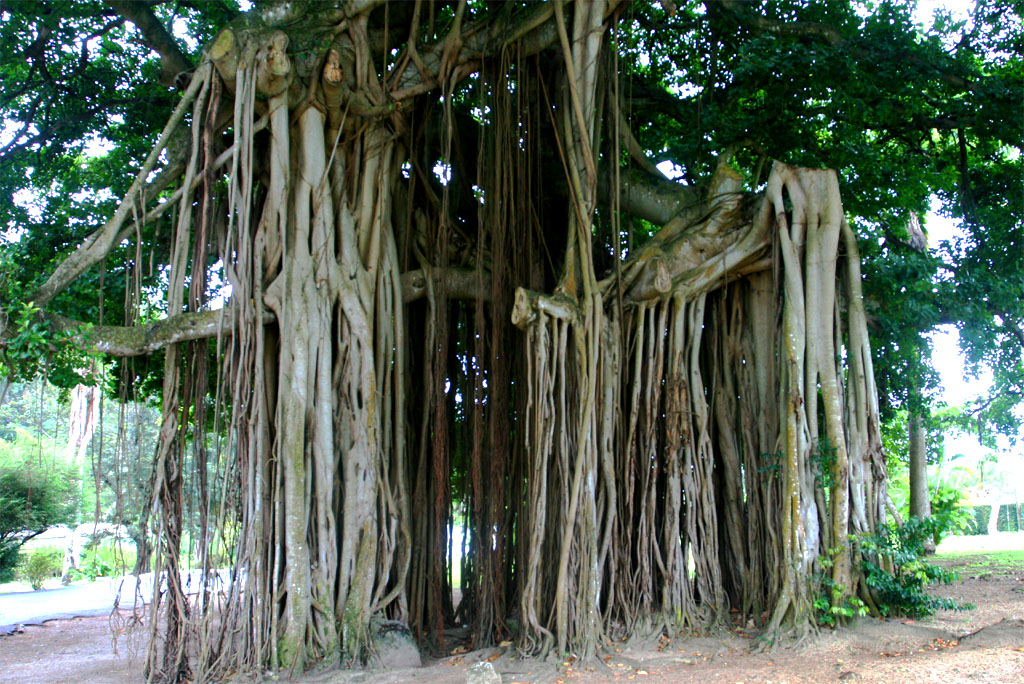
| But this figtree seemed to have survived
|
When we came back to the town of Roseau we had still plenty of time. It was a nice little town to stroll around. Join me by taking a look at the following self-explanatory photos.
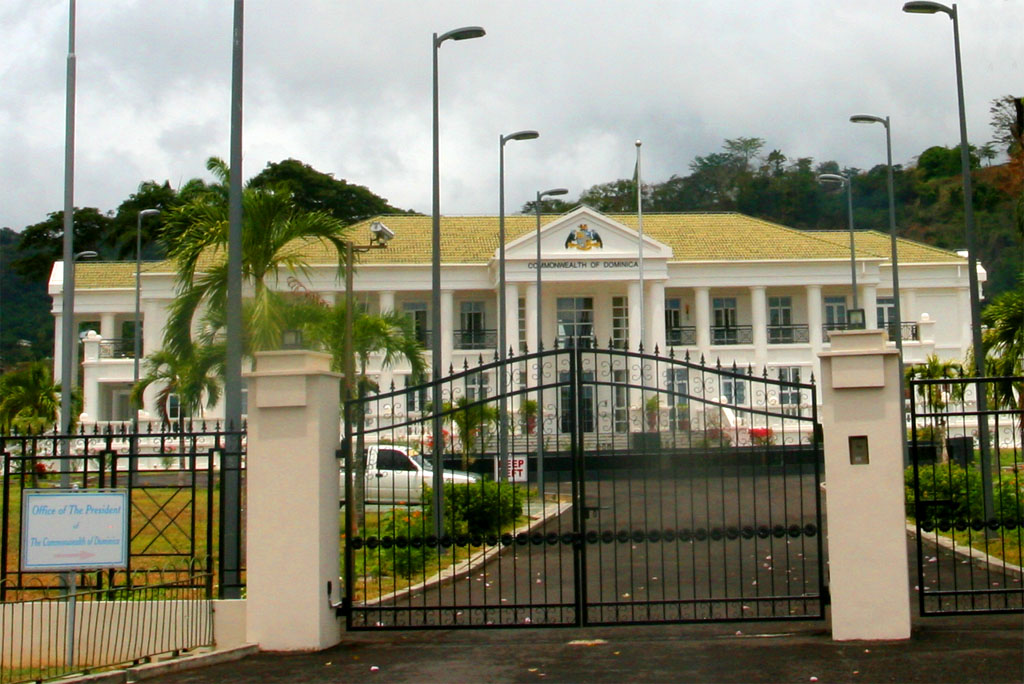
| The old "White House" of the governor
|
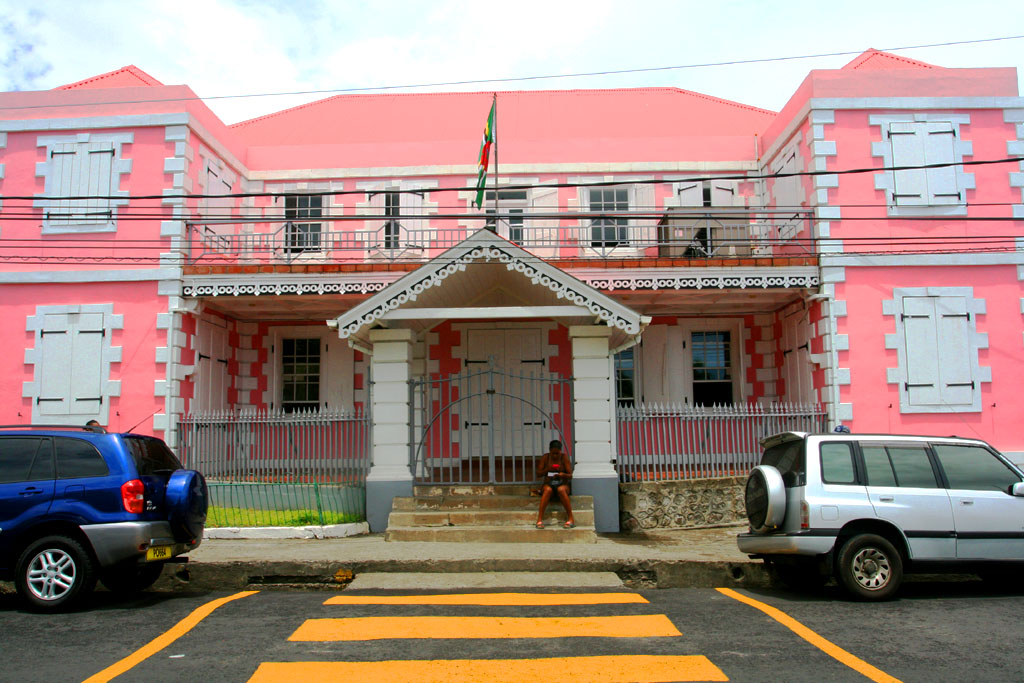
| And next to it: The Parliament
|
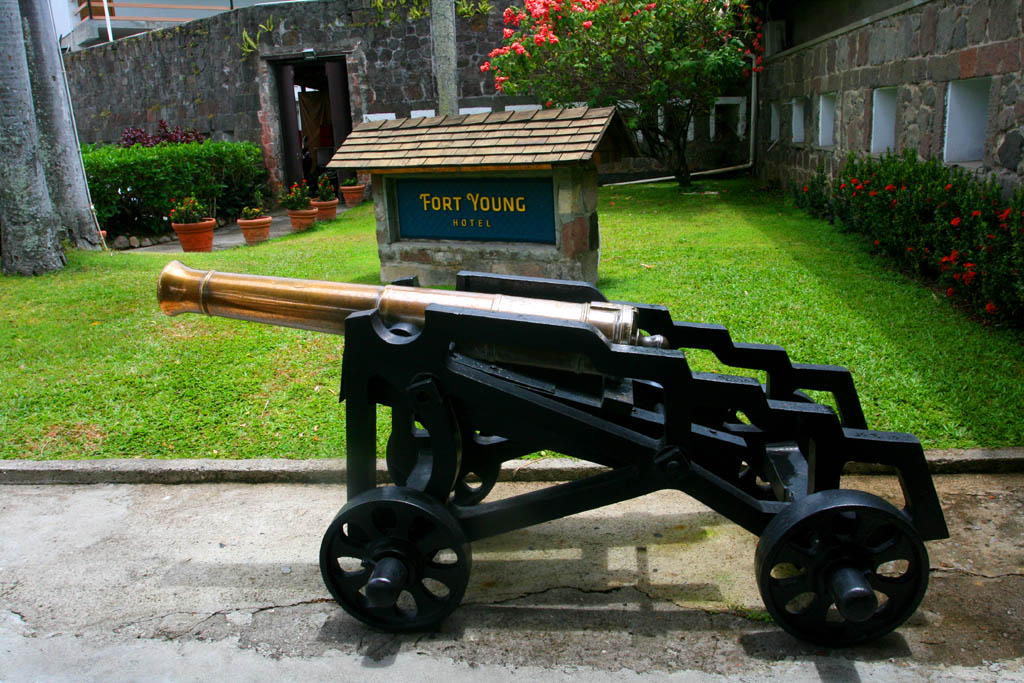
| And almost opposite is the Ford Young
|
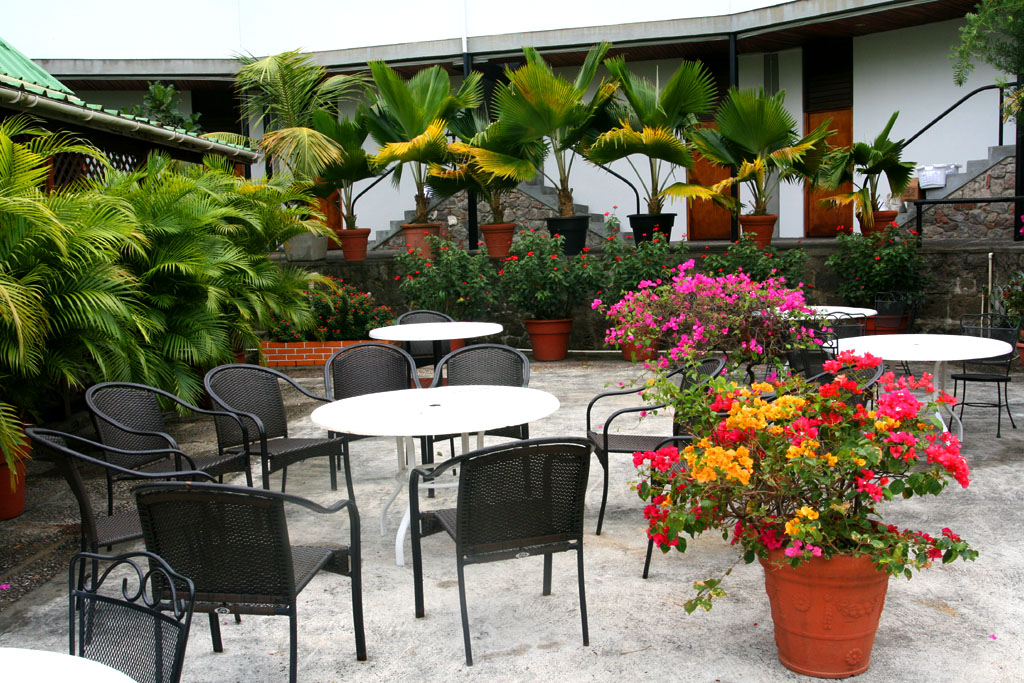
| which is a hotel now
|
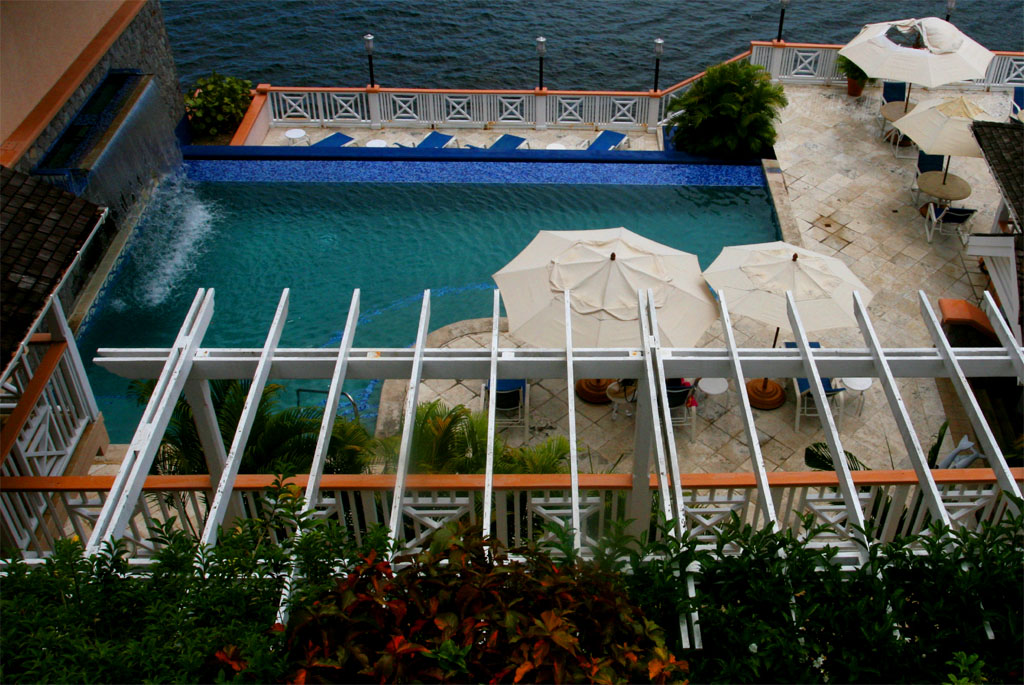
| And a nice swimming pool at the sea
|
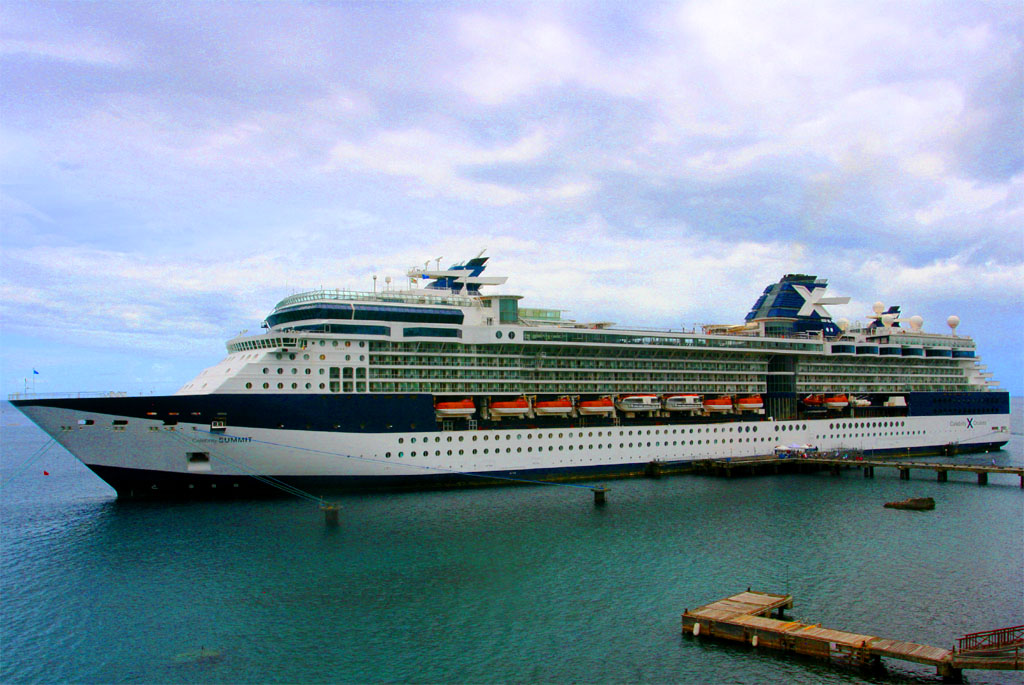
| with a nice view to the "Summit"
|
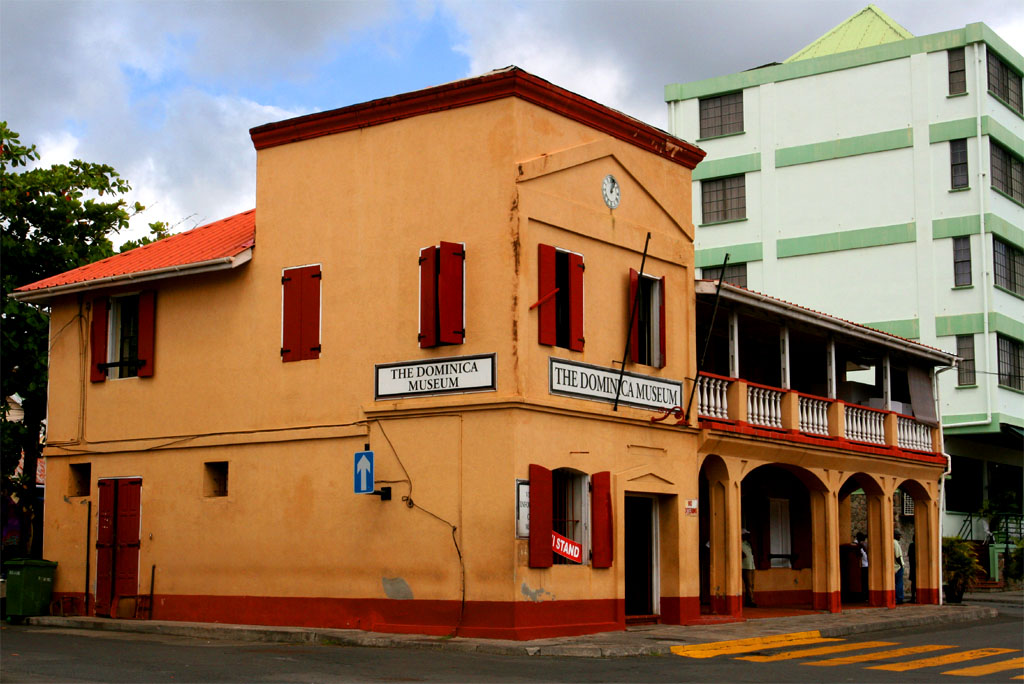
| The museum
|
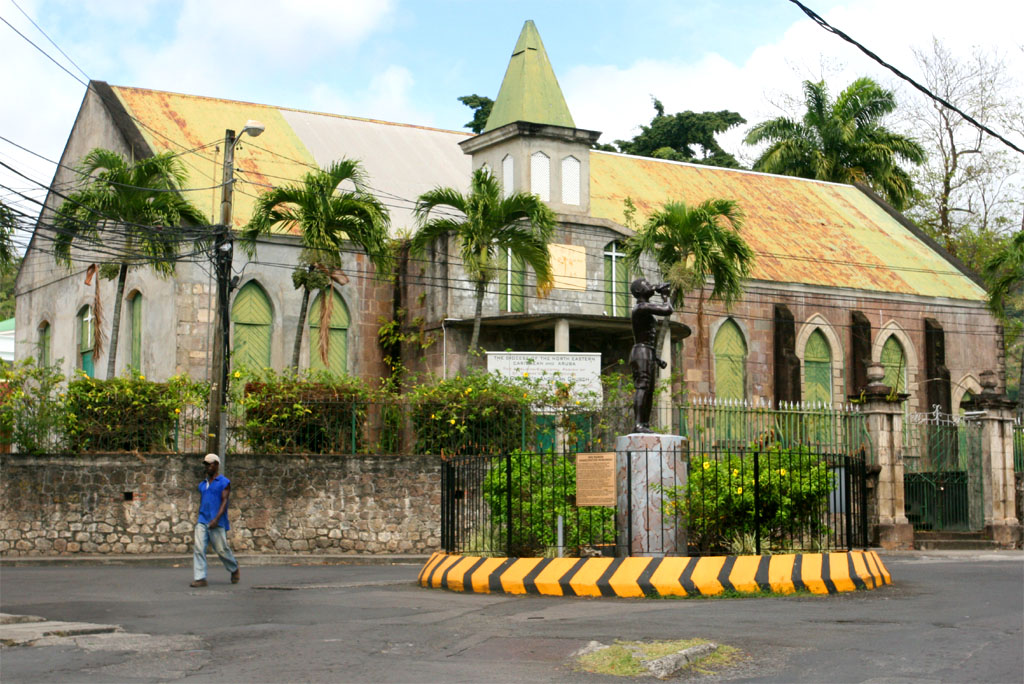
| The Anglican Church
|
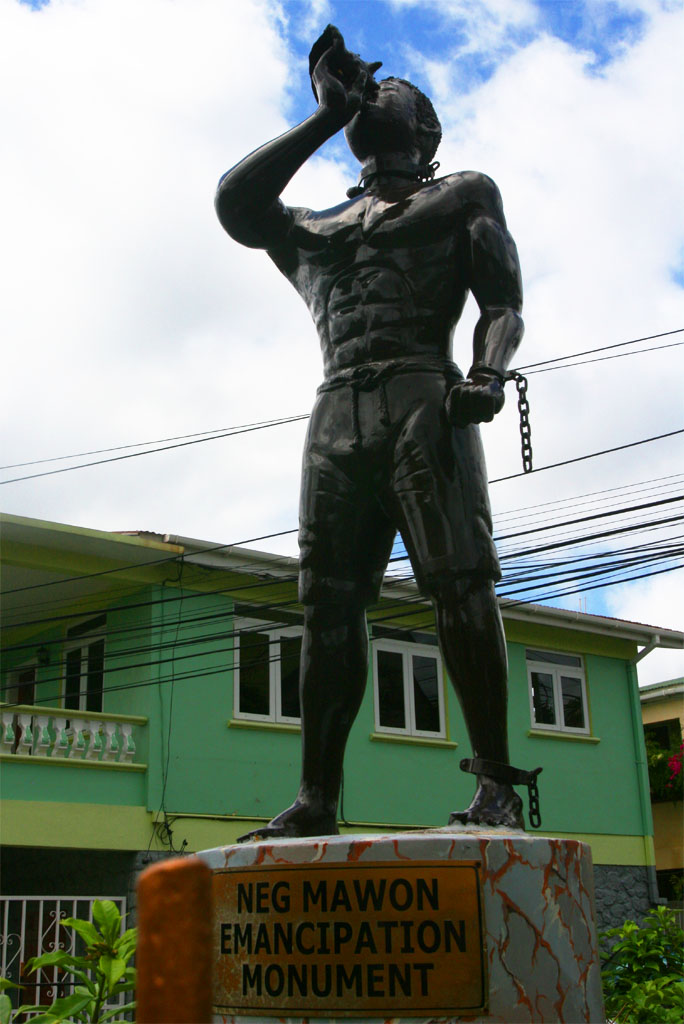
| This is this Emancipation Monument
|
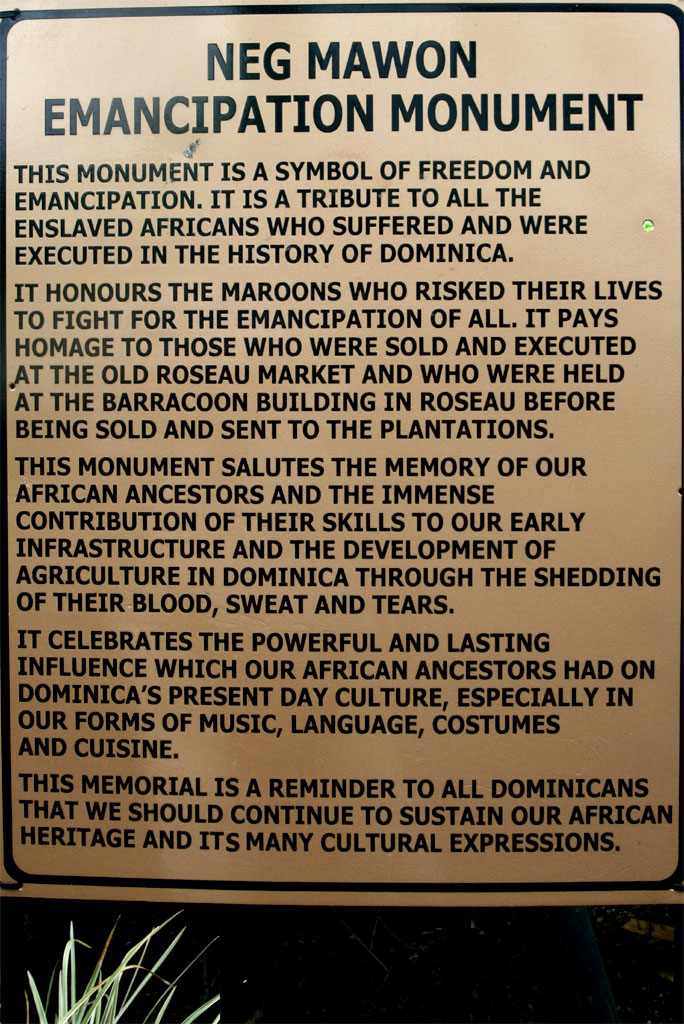
| This is why and how
|
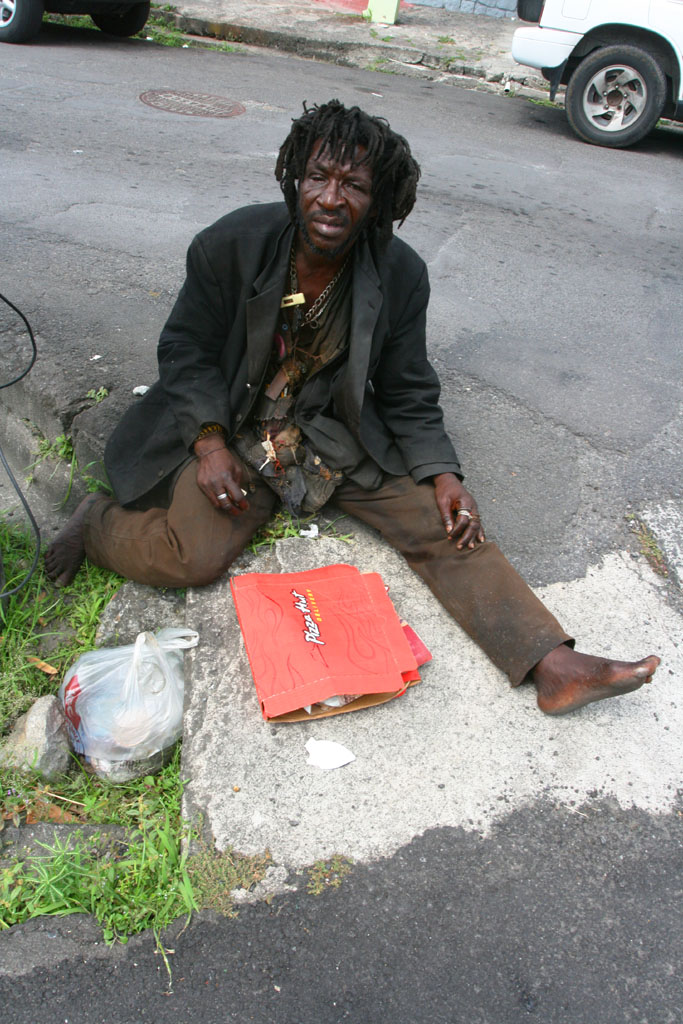
| When I gave him a dollar he asked me to buy him shoes
|
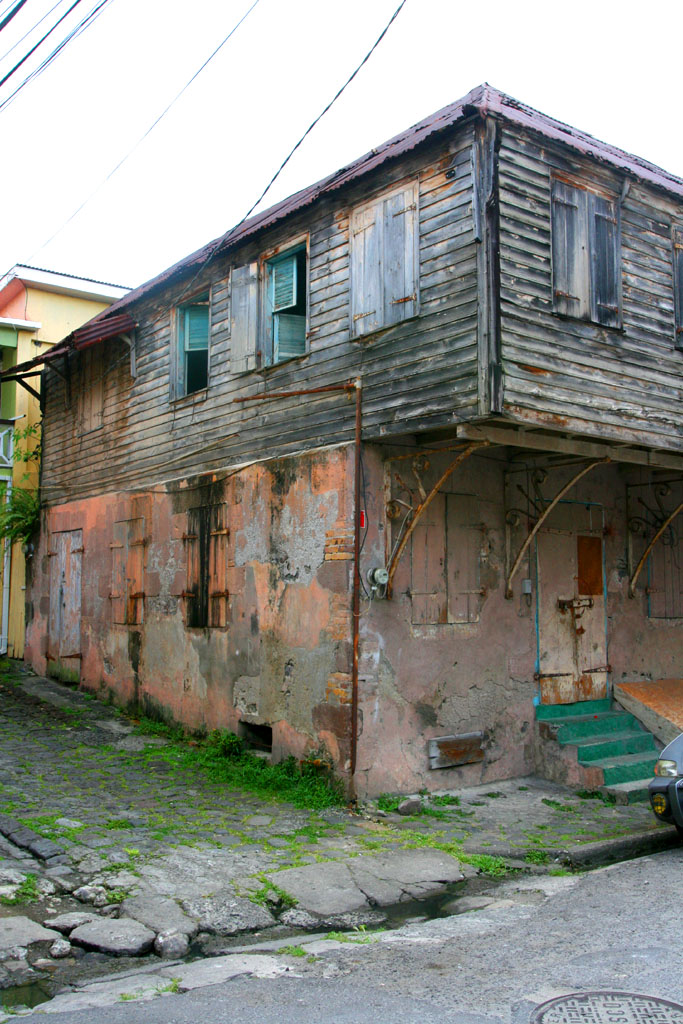
| Maybe next he will ask me to buy him a house
|
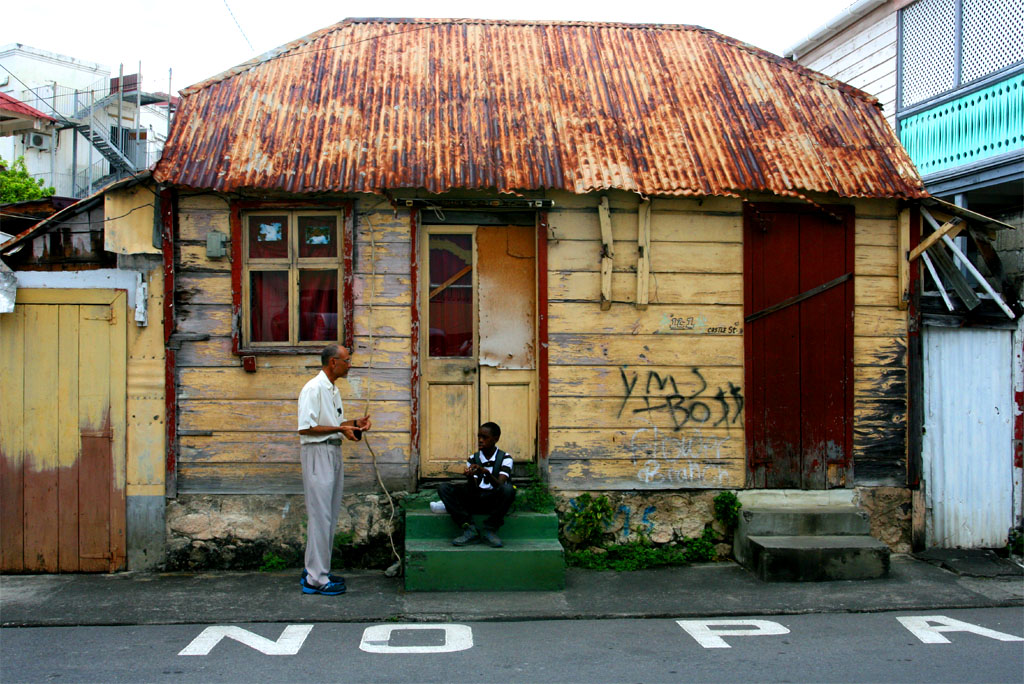
| Yes, many poor people live in Dominica
|
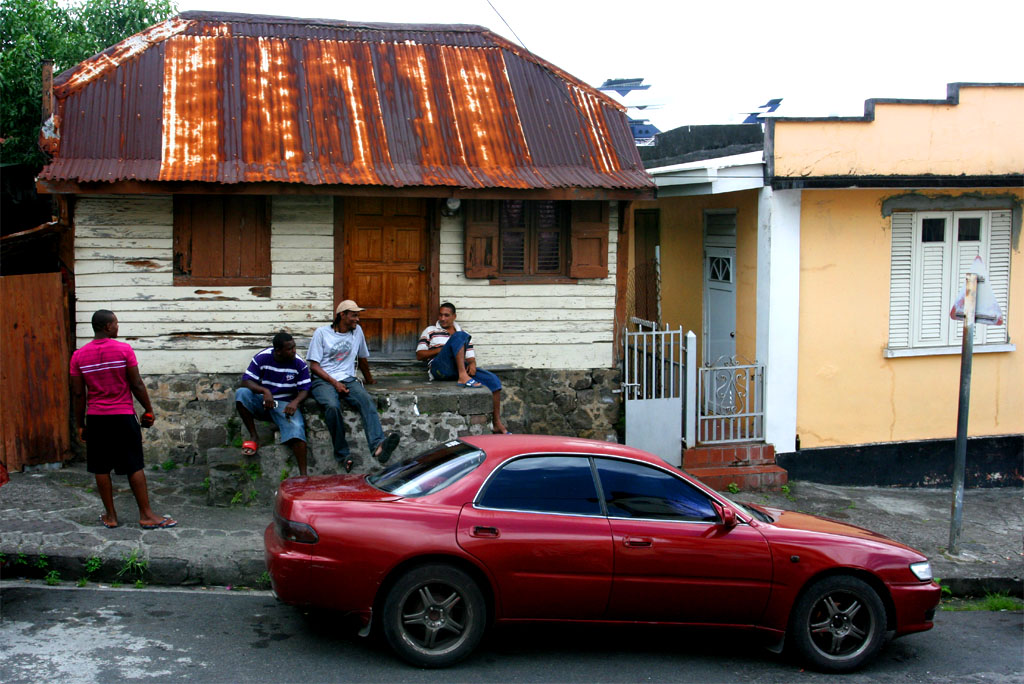
| in many old decaying houses
|
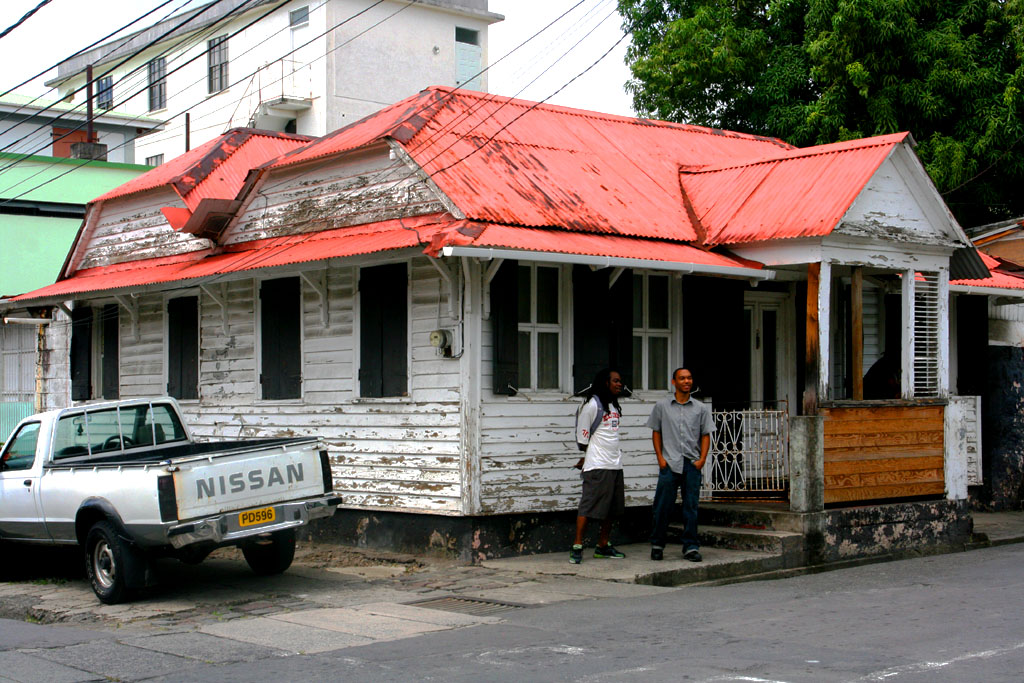
| No money is available for renovation
|
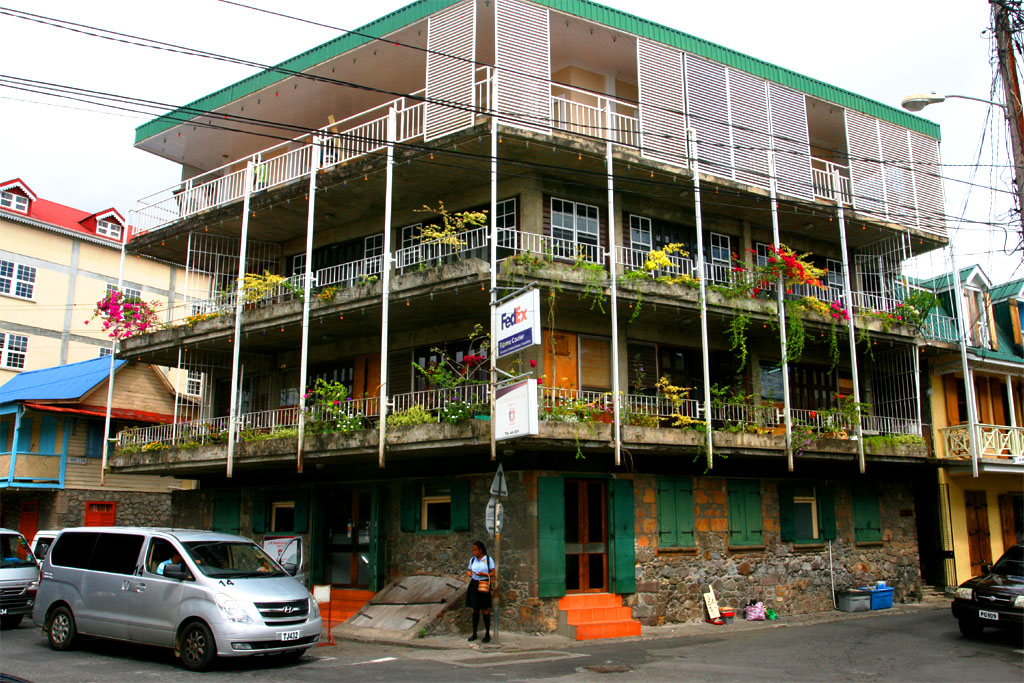
| Here the tenants make the best out of it
|
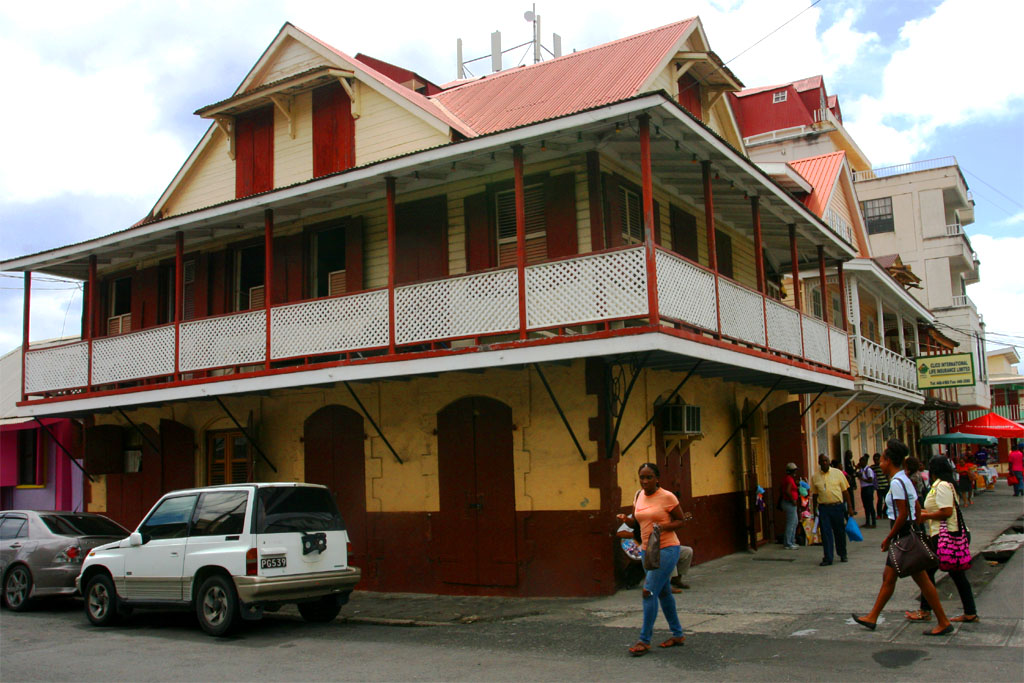
| At least they live in a city
|
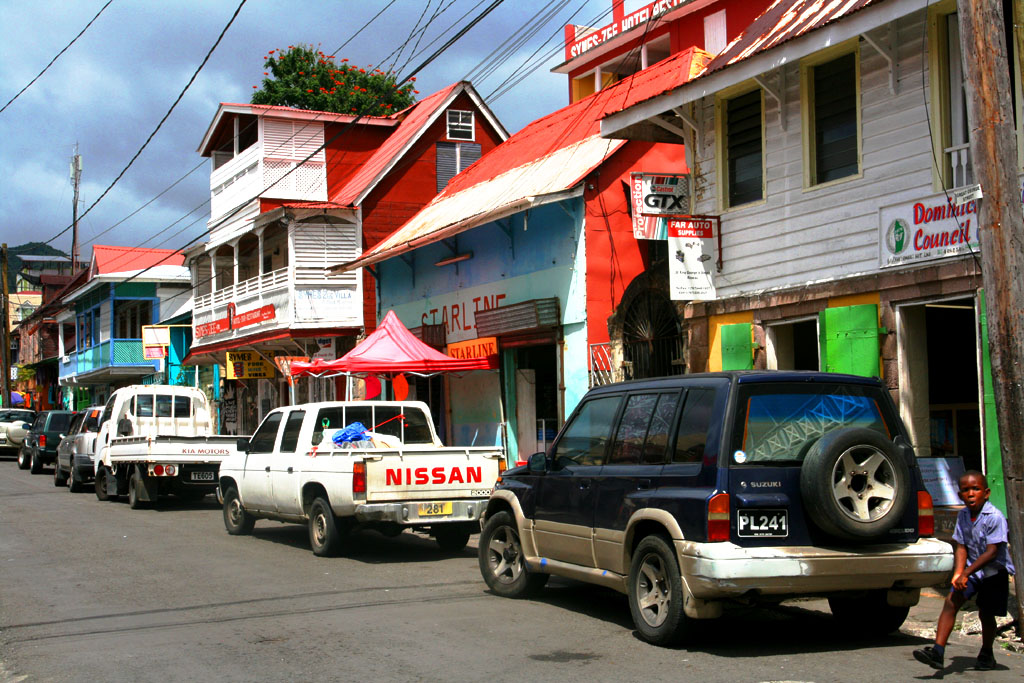
| with many shops around
|
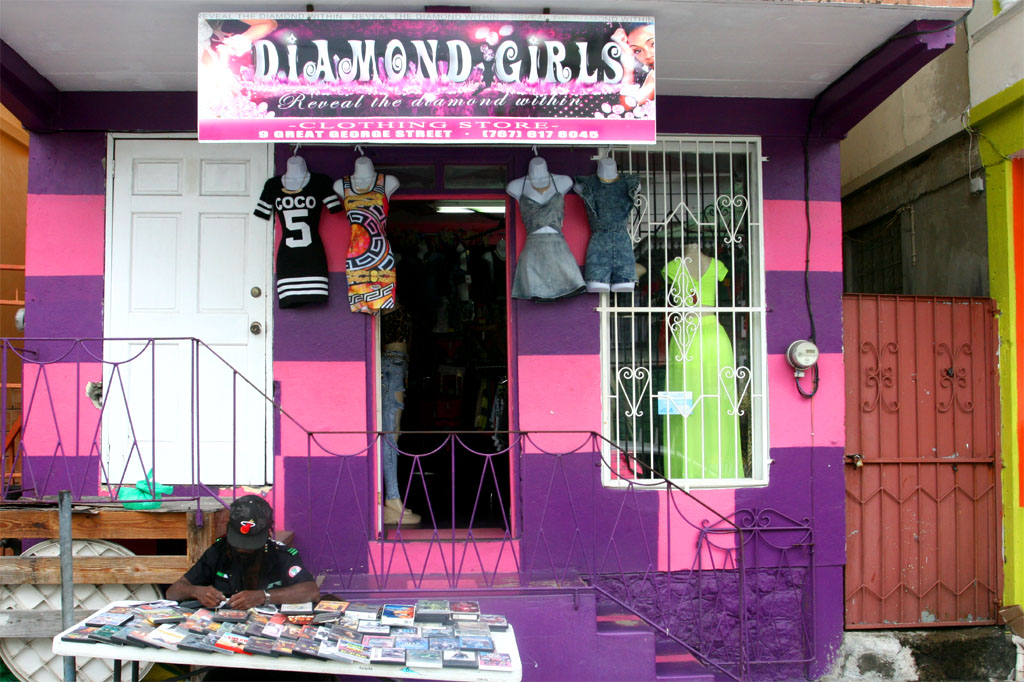
| Fashion shops can afford
|
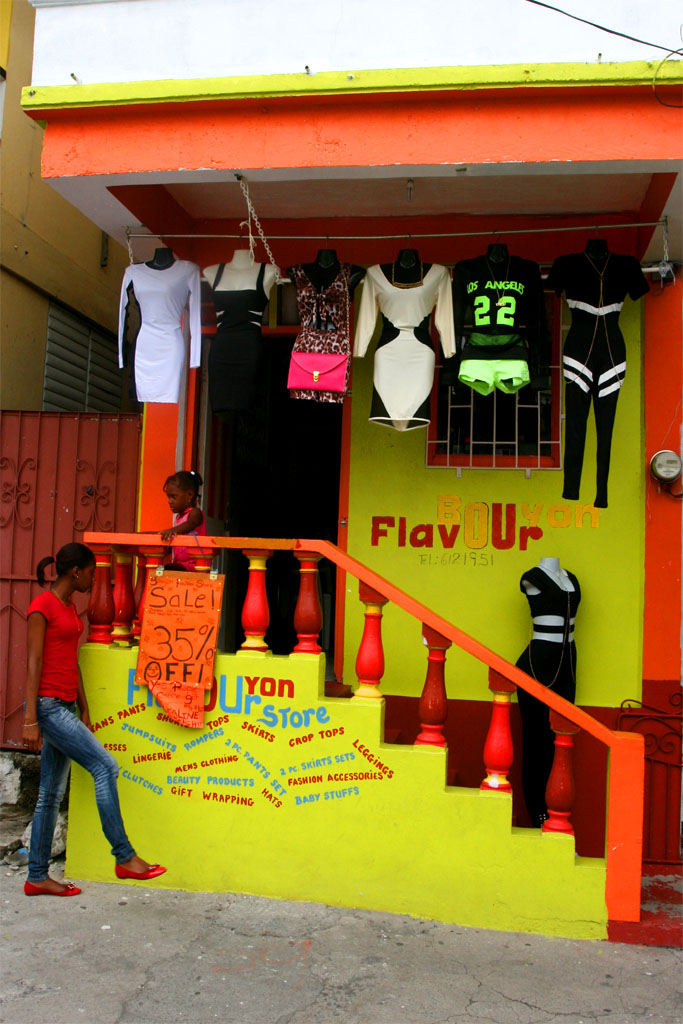
| to have the nicest colorful design
|
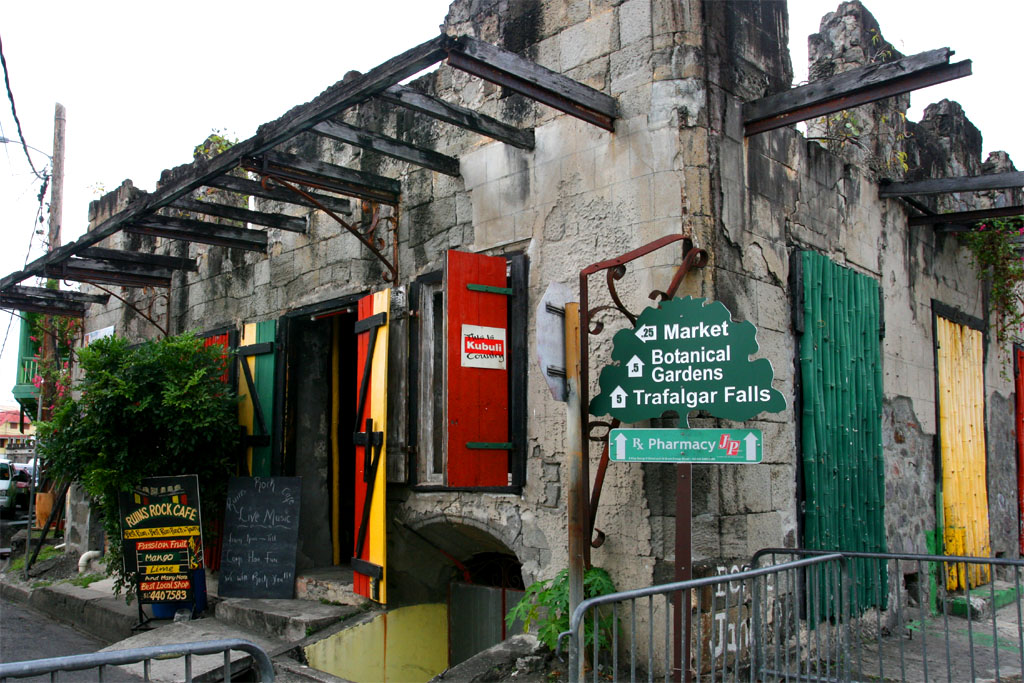
| This is the most unusual rock cafe in the world
|
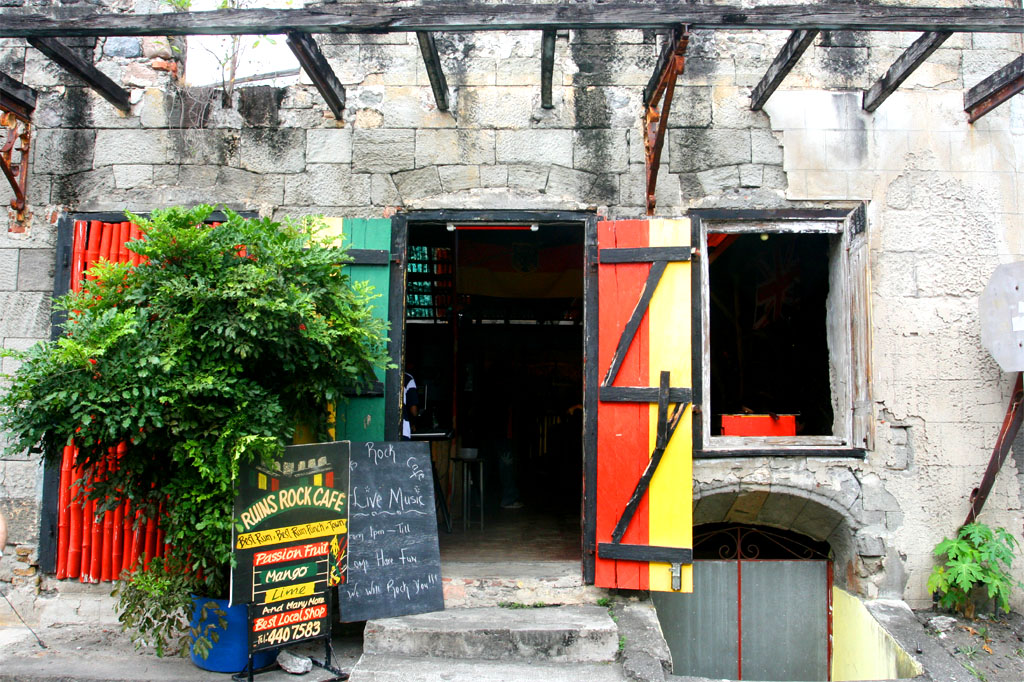
| It's the Ruin Rock Cafe in the Republic of Dominica
|
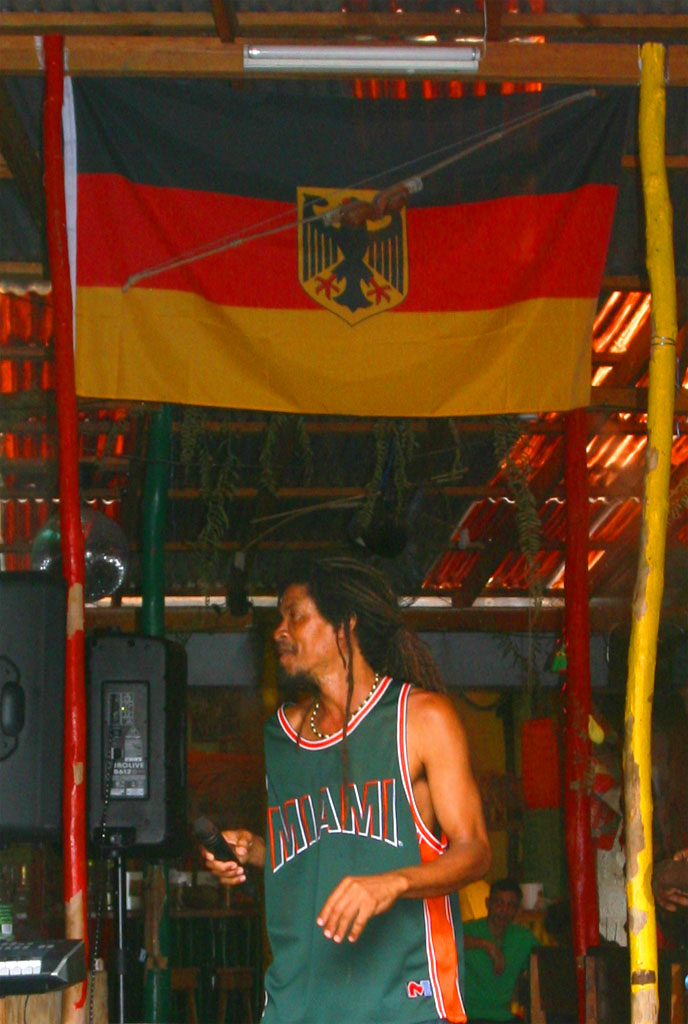
| Is this a German restaurant because of the German flag?
|
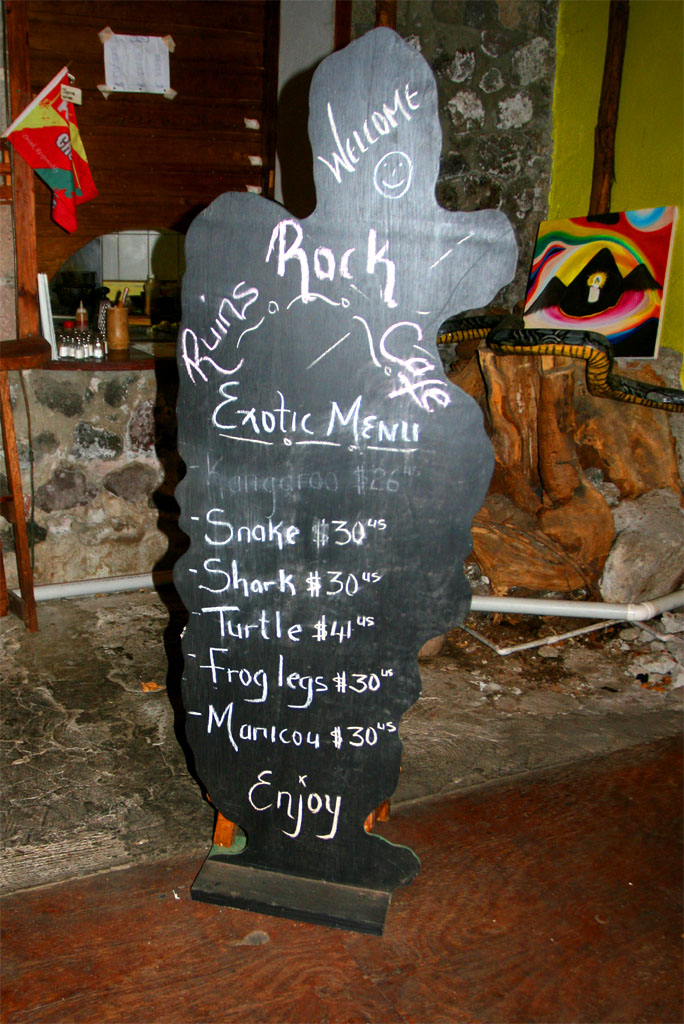
| No Bavarian knuckles but snake, shark, turtle and frog leg
|
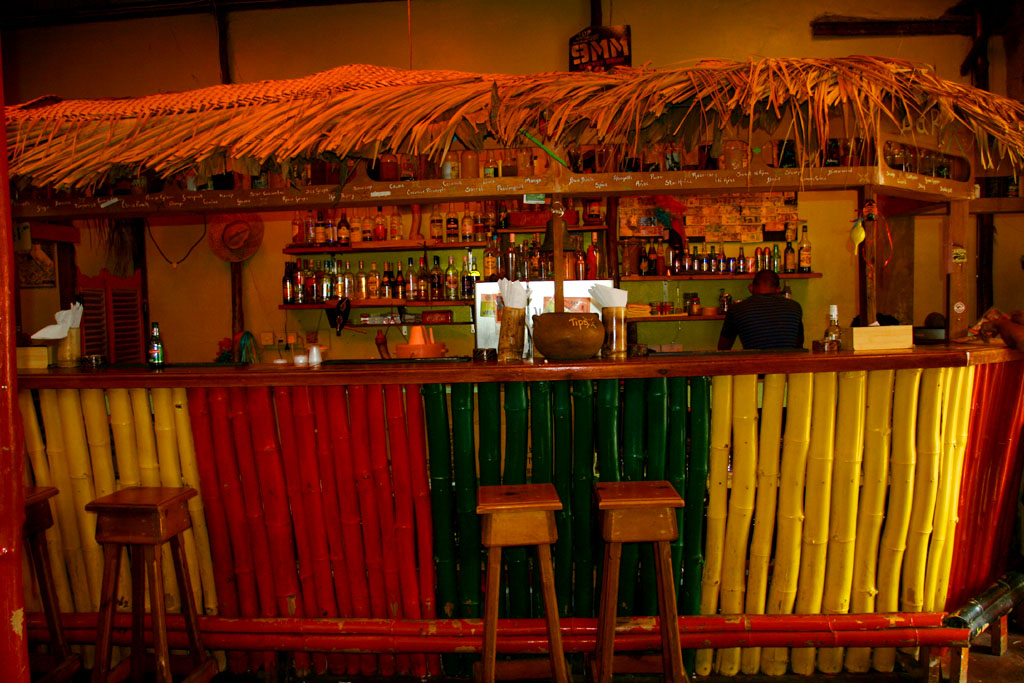
| You better flush down a couple of tequilas after having eaten snakes
|
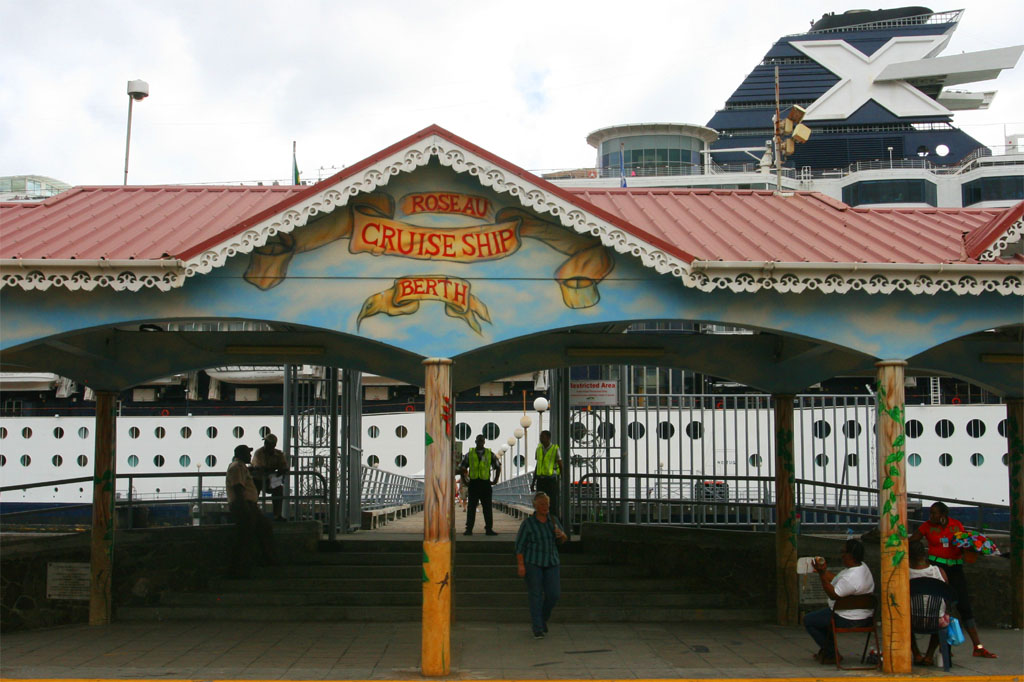
| And also gulp down a bottle of beer before you get back to the pier
|
That's it. Not much but all what you can do in a day between 9:00 a.m. and 5:00 p.m. Again: We always try to leave our arrival city right away in order to see the countryside first to be on the safe side to reach our ship before the scheduled departure. It gets very expensive if you miss the ship. One white lady told us that it once happened to her. She even was jailed and mistreated, because she didn't have the right documents, whatsoever, with her. Eventually she was able to fly out (I don't remember that she named the island).
Now at last some more information about Dominica.
The following are excerpts from "en.wikipedia.org/wiki/Dominica":
The name Dominica comes from the Latin word dies Dominica for Sunday, the day on which the island was spotted by explorer Christopher Columbus.
The indigenous people of the island were the Island Caribs or Kalinago.
The island became multi-ethnic due to European colonisation, which included the importation of numerous African slaves. The French had the longest influence prior to ceding the island to the British in 1763 after losing the Seven Years' War. Although English is now the official language, an Antillean Creole, based on the French language, West African and Carib influences, is still spoken by many residents, especially people of older generations.
Dominica is a parliamentary democracy within the Commonwealth of Nations and, since 1979, a member of La Francophonie. The Commonwealth of Dominica is one of the Caribbean's few republics. The president is the head of state, while executive power rests with the cabinet, headed by the prime minister. The unicameral parliament consists of the 30-member House of Assembly
According to a census in 2014 Dominica had 72,337 inhabitants, of these are 0.8 % whites, 86.0 % are of African origin, 9.0 % mixed, 3.5 % Kalinago and 0.7 % others.
The currency is the East Caribbean Dollar (EC$). The exchange rate is 2.70 EC$ for 1.00 USD. But there is no problem to pay in USD, but be careful not to mistake EC$ prices as USD.
All of the previous information are very brief, just to give you an idea of what kind of island Dominica is. If you want to know more about the places we have visited and more about politics, economy, etc. then look up any guidebook and the internet.
| 